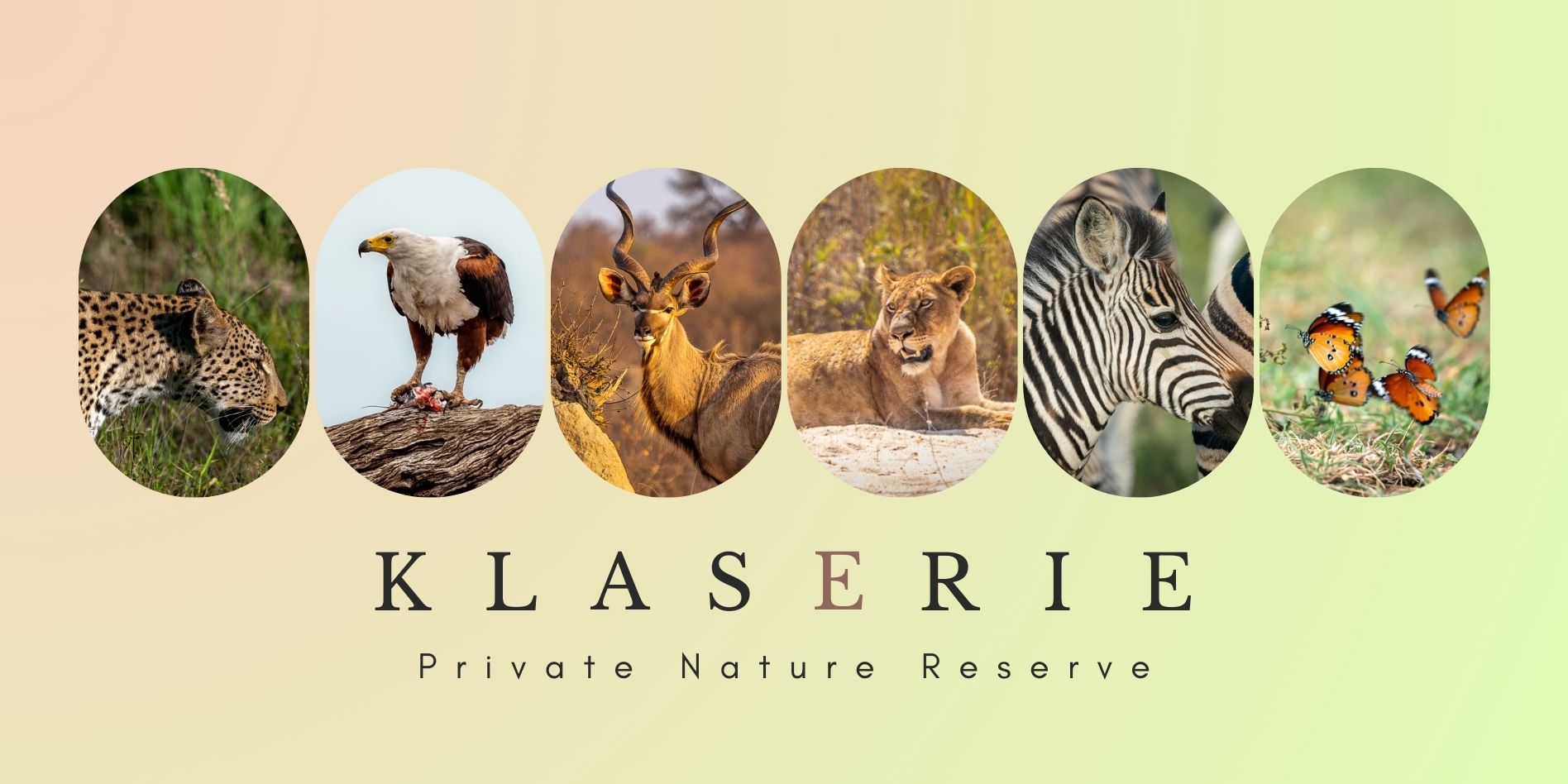Seeking an authentic African safari away from the bustling crowds? Discover Klaserie Private Nature Reserve, your perfect escape into the wild.
With extensive travels across Southern Africa, our experience with safaris runs deep. We’ve fallen in love with this private game reserve, exploring its pristine landscapes over four months, making it one of South Africa’s most unspoiled natural wonders.
This guide covers all the essentials: conservation fees, top lodges, historical insights, and health precautions you need for a safe and enriching experience.
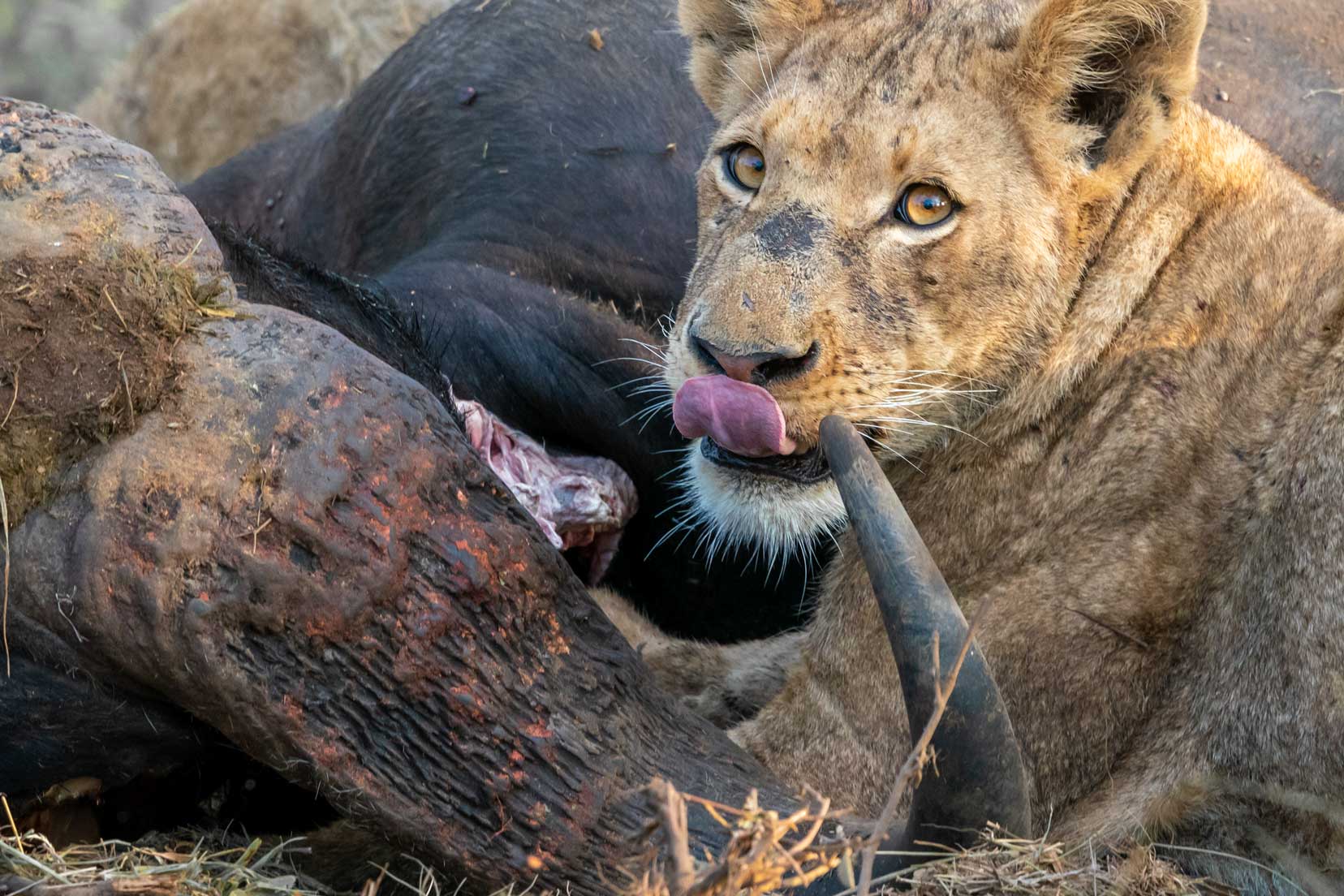
And there’s more to this adventure.
Additionally, we’ll share our breathtaking experiences that vividly capture Klaserie’s essence, from a thrilling encounter with a leopard to witnessing the Super Pride of lions in a riveting hunt.
Experience Klaserie through our eyes as we eagerly share our unforgettable journey with you.
Let’s explore the untamed beauty of Klaserie, the serene yet equally mesmerizing neighbour of Kruger Park.
🥜 This Klaserie Guide in a Nutshell 🥜
Destination: Klaserie Private Nature Reserve, South Africa
Highlights
- Unique Safaris: Experience close encounters with the Big 5 and other unique wildlife like the African wild dog and the elusive leopard.
- Conservation Efforts: Learn about Klaserie’s pioneering anti-poaching initiatives and how your visit supports vital conservation work.
- Accommodation: Choose from a range of lodges, from luxurious to rustic, ensuring an unforgettable stay whatever your budget.
- Travel Tips:
- Best Time to Visit: Dry season (May to September) for the best wildlife viewing.
- Health Precautions: Malaria prophylaxis is recommended; consult your doctor before travel.
- Activities: Guided bush walks, night drives, and photographic safaris for an in-depth exploration of the African bush.
- Getting There: Accessible by road from Johannesburg or direct flights to nearby Hoedspruit Airport, with transfers available to the reserve.
Why Read This Guide: Whether you’re planning a detailed safari adventure or just dreaming about your next big trip, this guide offers all you need to know about Klaserie Private Nature Reserve, wrapped up with personal stories and practical tips from experienced travellers.
Out Top Picks of Where to Stay in Klaserie:
- Wild Legacy Safari Lodge: Book an exclusive Rustic Lodge on a catered or self-catered basis, with two Game drives or Game walks a day with one of South Africa’s most experienced guides.
- Ivory Wilderness River Rock Lodge: An incredible family-run luxury safari lodge.
- Klaserie Drift Luxury Lodge: Comfortable and Luxurious Lodge in Klaserie.
Why Visit Klaserie Private Nature Reserve, South Africa?
So, why do we think Klaserie could be your perfect next safari spot? From its close ties with Kruger Park to helping local kids, here’s what makes it special.
- Unfenced Borders with Greater Kruger National Park
- Unique Wildlife Encounters
- Anti-Poaching Initiatives
- Less Crowded
- Community Involvement
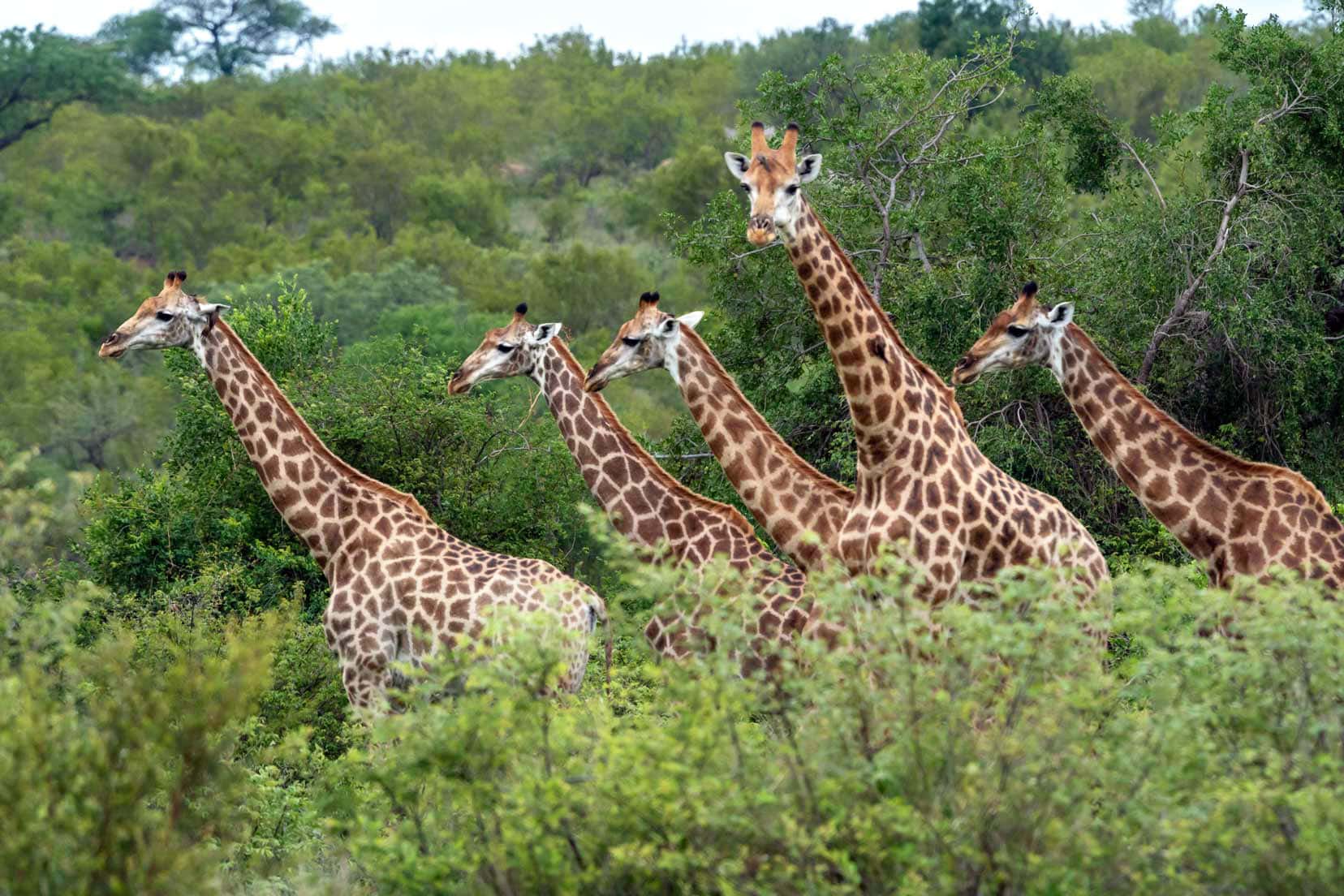
Unfenced Borders within Greater Kruger Park
Klaserie shares an open border with the famous Kruger National Park. This means the wildlife roams freely between the two, offering you a more natural and authentic safari experience.
Unique Wildlife Encounters
We’ve had some unforgettable wildlife encounters in Klaserie. You’ll find the Big 5 here. You might even spot African wild dogs, cheetahs, and various antelope species, including kudu, impala, waterbuck, and nyala.
I had a too-close-for-comfort encounter with a leopard in our camp and even had a rare sighting of the elusive pangolin. Oh, and let’s not forget the cheeky baboon that decided one of my lemons would make a great snack!
💡Tip: If you’re keen on safari photography, the golden hour just after dawn is perfect for capturing the Big 5.
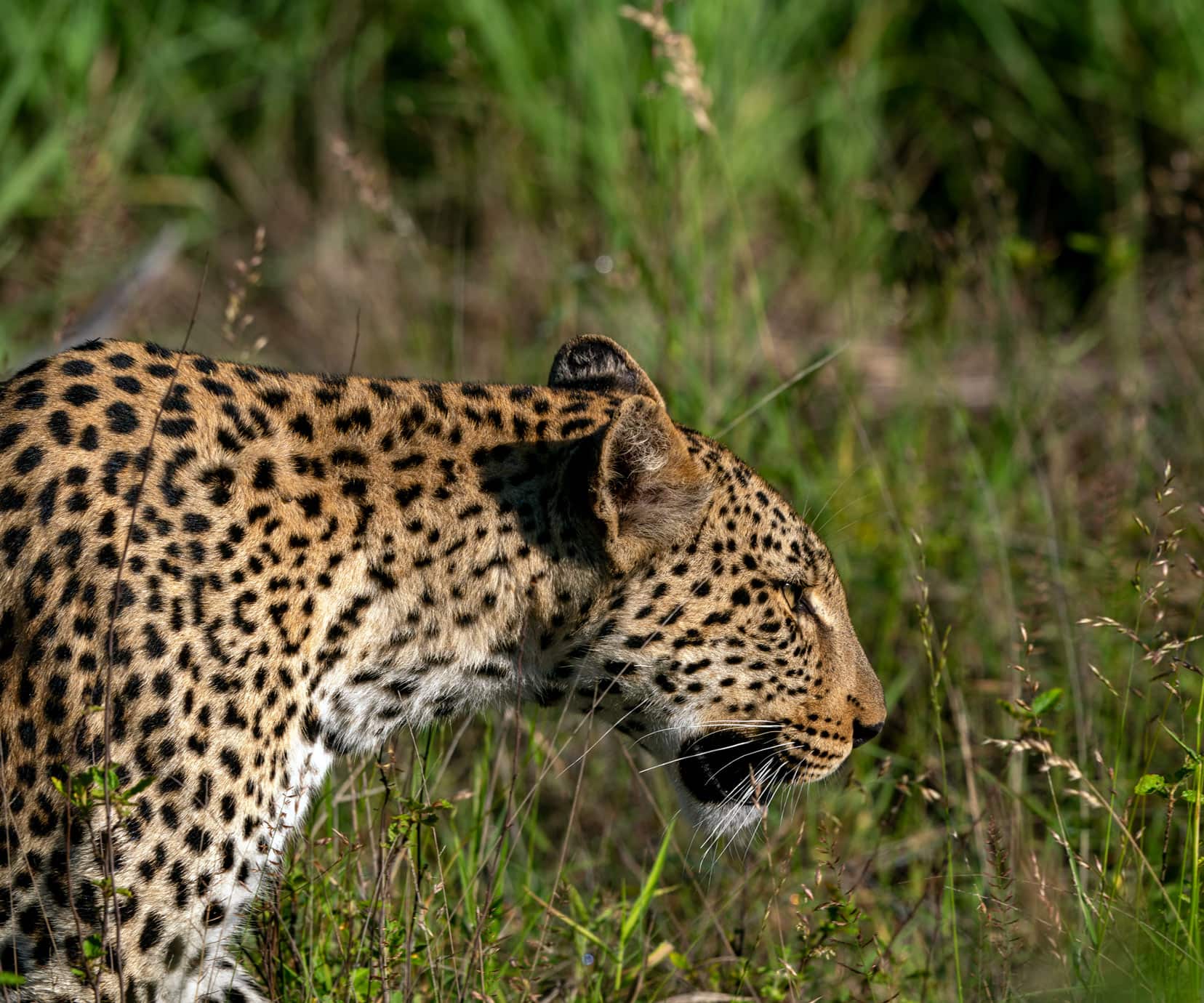
Klaserie Anti-Poaching Initiatives
Klaserie Private Game Reserve pioneered proactive measures to deter poachers, like a rhino dehorning project. The reserve employs field rangers and even has a dedicated K9 unit.
One standout story involves the head ranger who risked his life to save a baby rhino. During a dehorning operation, the young rhino became separated from its mother and was at risk of drowning. The ranger dived into the river, putting himself in danger to save the animal.
Your visit to Klaserie contributes to these crucial conservation efforts.
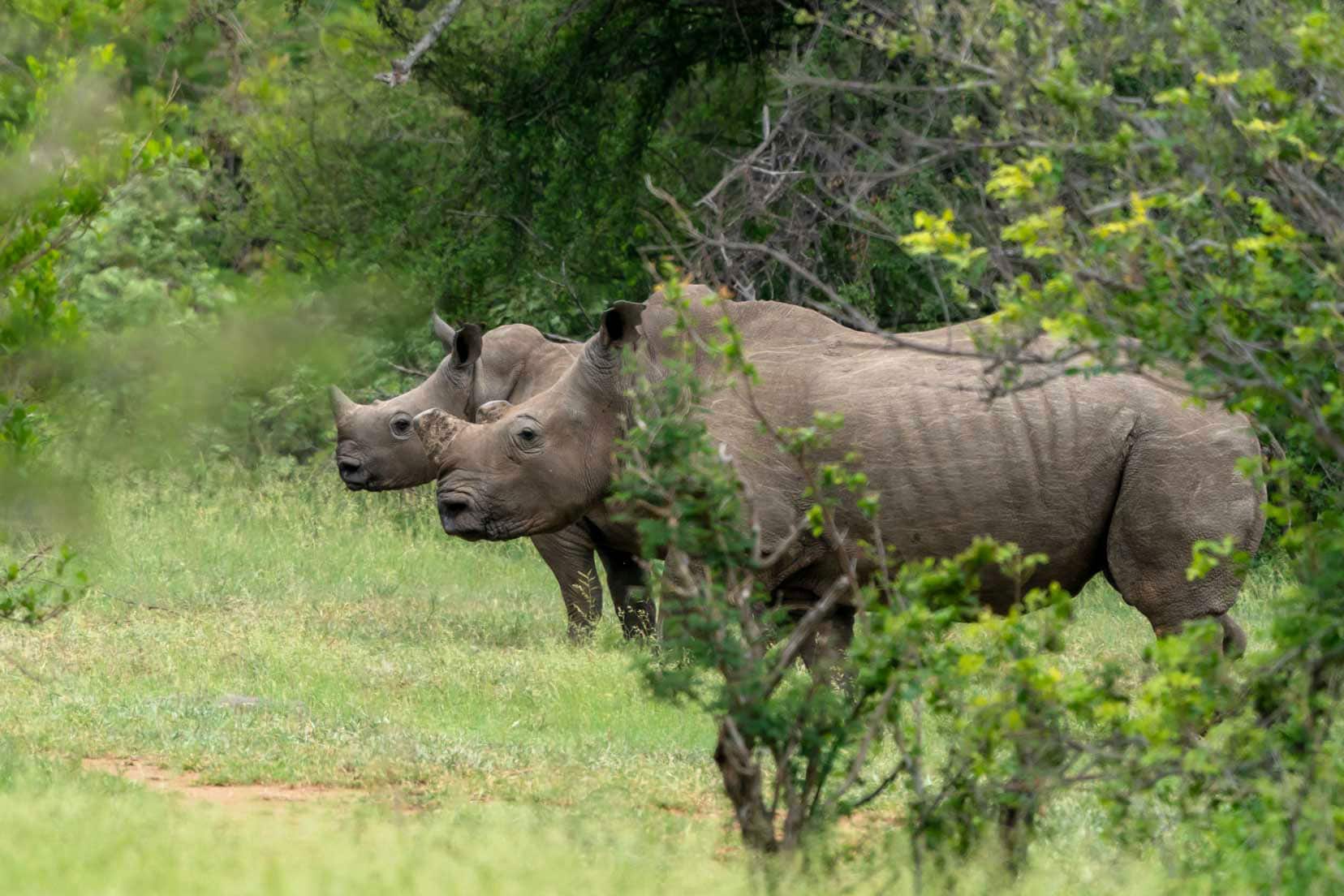
Less Crowded
The lack of crowds in Klaserie means you get a more intimate wildlife experience. It’s a quieter alternative to more touristy spots like Kruger, making your safari memorable.
Community Involvement
Klaserie is home to the Eco Children project, an initiative educating local children about their natural heritage. It’s a heartwarming endeavour benefiting over 5,000 children in some of South Africa’s poorest areas.
So, why choose Klaserie? Because it offers an authentic, impactful, and unforgettable safari experience.
Ready to dive deeper into Klaserie’s wonders? Read on …
Planning a Trip to South Africa?
- 🚗 Hiring a car? We recommend getting a quote from DiscoverCars
- 🚐 Hiring a campervan? We recommend Motorhome Republic
- ⛑ Arranged your travel insurance? Compare quotes from World Nomads & Safetywing
- 🪪 Order your International Driver’s Licence online here
- 🏩 Booked your accommodation? We use Booking.com to find the best deals
- 🐾 Is someone pet-sitting for you? 🐾 We use and love TrustedHousesitters
- (Get 25% off at checkout for new memberships with our discount code: LIFEJOURNEY25)
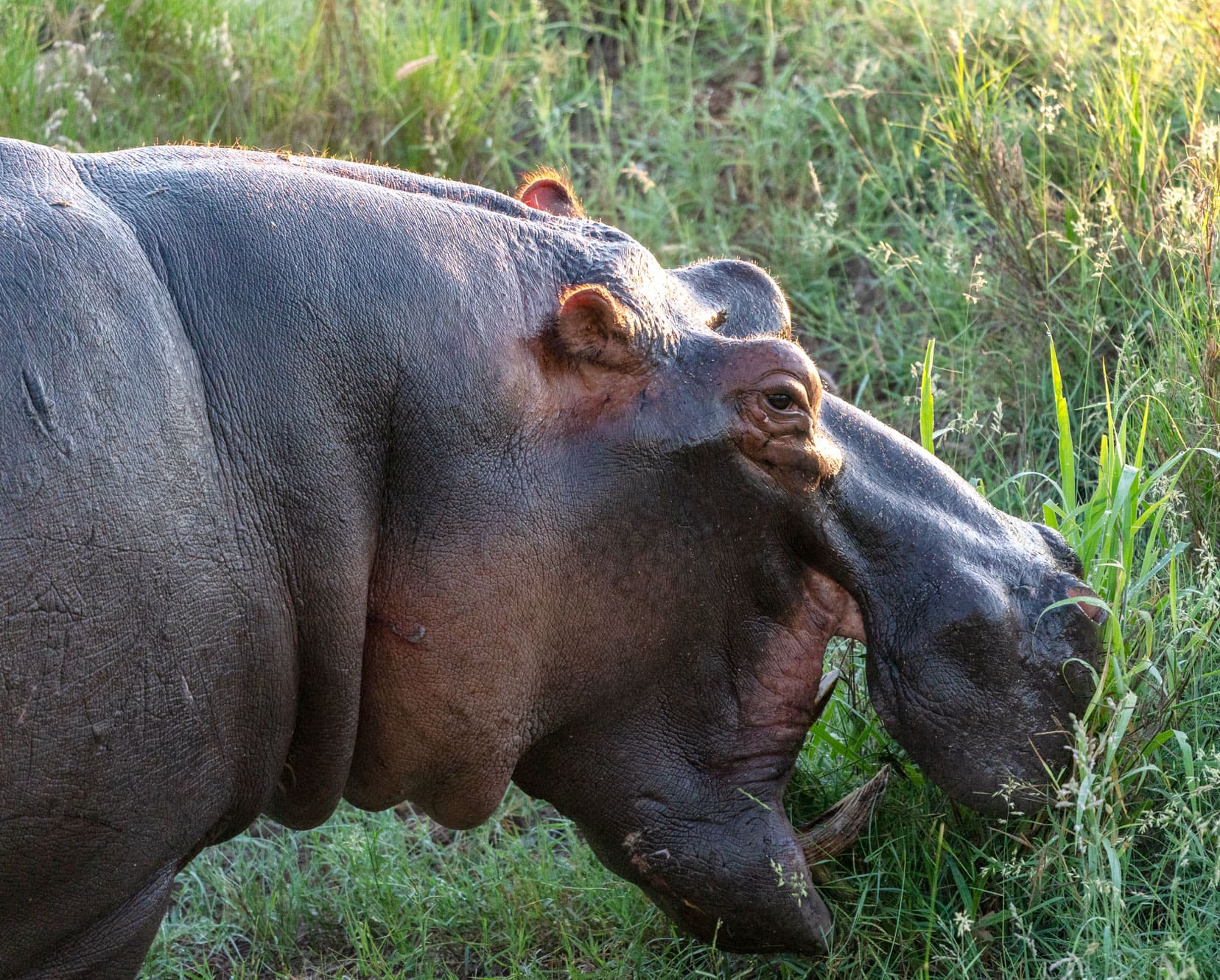
Our Personal Klaserie Adventure
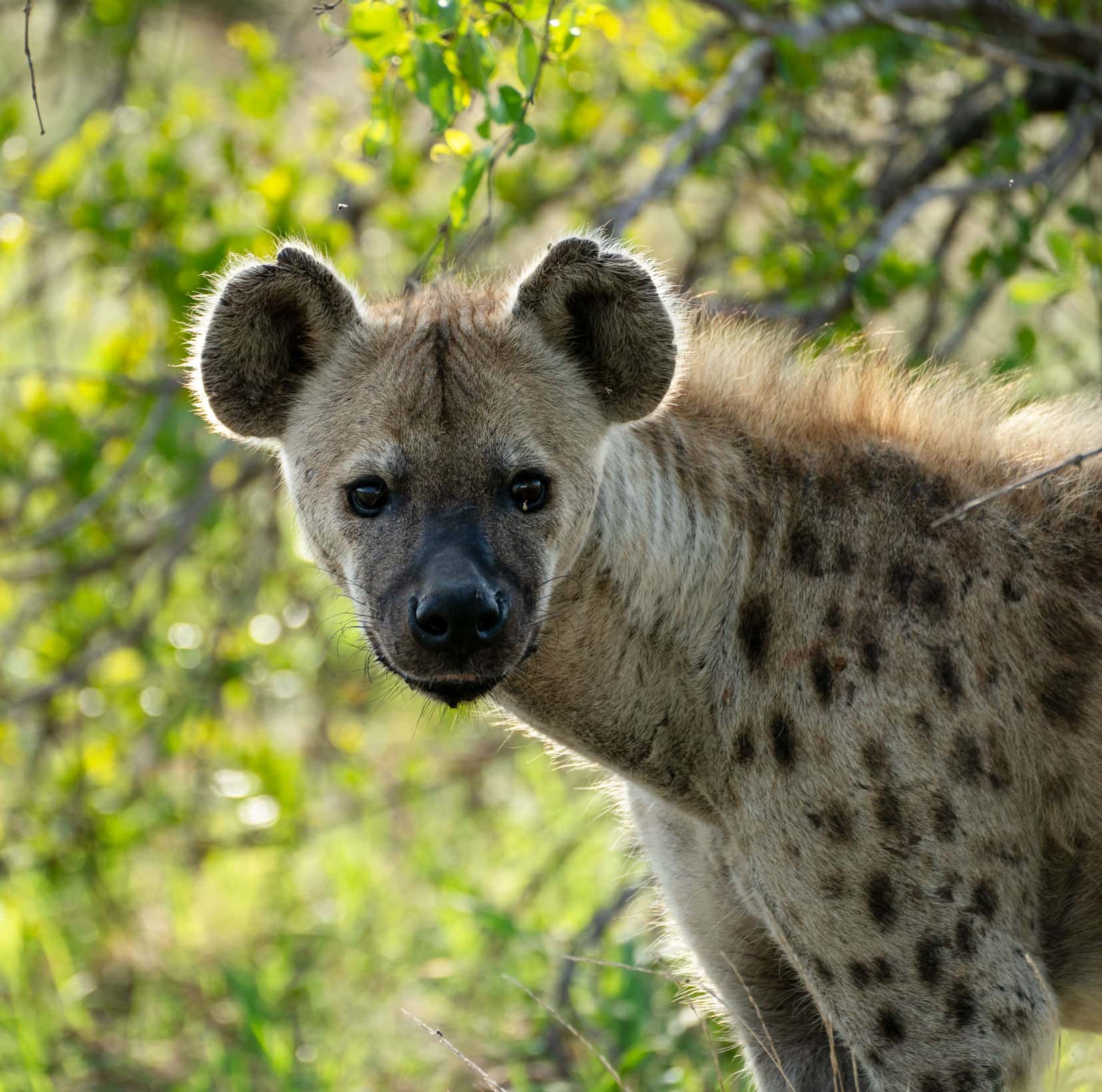
The Leopard Encounter: A Lesson in Humility
She was obviously unimpressed with me.
Which was a shame because I adored even the slightest glimpse of her.
But there is a time in life when the collision of two worlds would prove disastrous.
Now was that time.
You never really prepare for a face-to-face with a snarling leopard. But when it happens, every instinct screams conflicting advice.
My heart raced, but I knew running was not an option. Slowly, I backed away, each step an eternity, until I reached the safety of our rondavel.
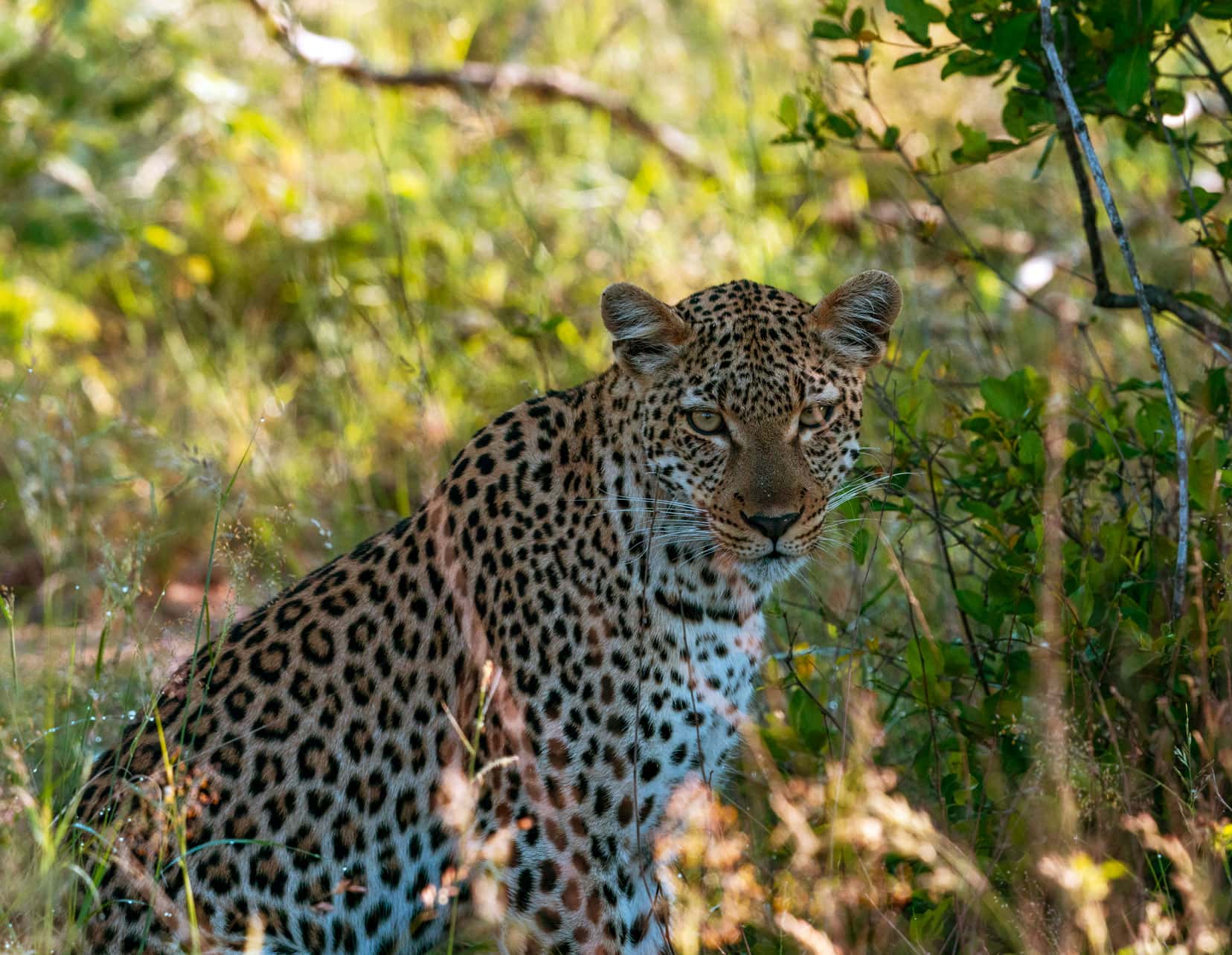
The Lockdown Twist: When Life Gives You Klaserie
COVID-19 threw a wrench in our two-year African road trip.
But as they say, when one door closes, another opens.
We’d arrived in Johannesburg, bought our 4×4 Hilux bush camper and set off with the plan of road-tripping through South Africa and then heading north into Botswana, Namibia and onwards, traversing the east coast of Africa.
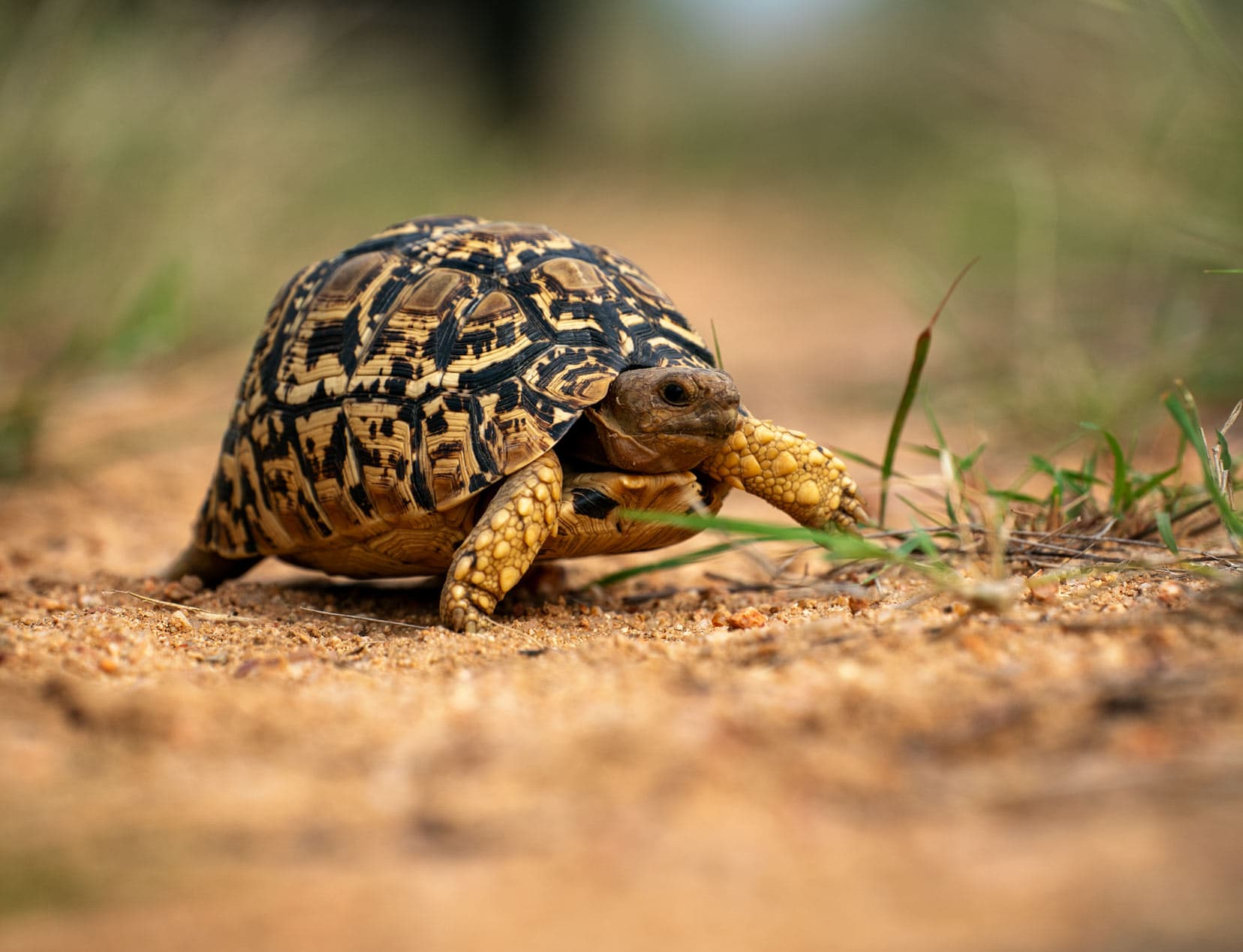
Taking a break from camping, we’d organised a five-week house sit in Prince Albert, in the Western Cape — then South Africa went into lockdown. The family we were pet-sitting for stayed at their bush camp in Klaserie Nature Reserve during this time.
So, they were stuck there, and we were in their home on the other side of South Africa, amongst the Swartberg Mountains, for five months.
After five months, with leisure travel still forbidden, they knew we couldn’t continue with our plans to overland Africa. So, they very generously suggested we swap with them.
They would return home, and we would travel to Klaserie and experience life in the African bush.
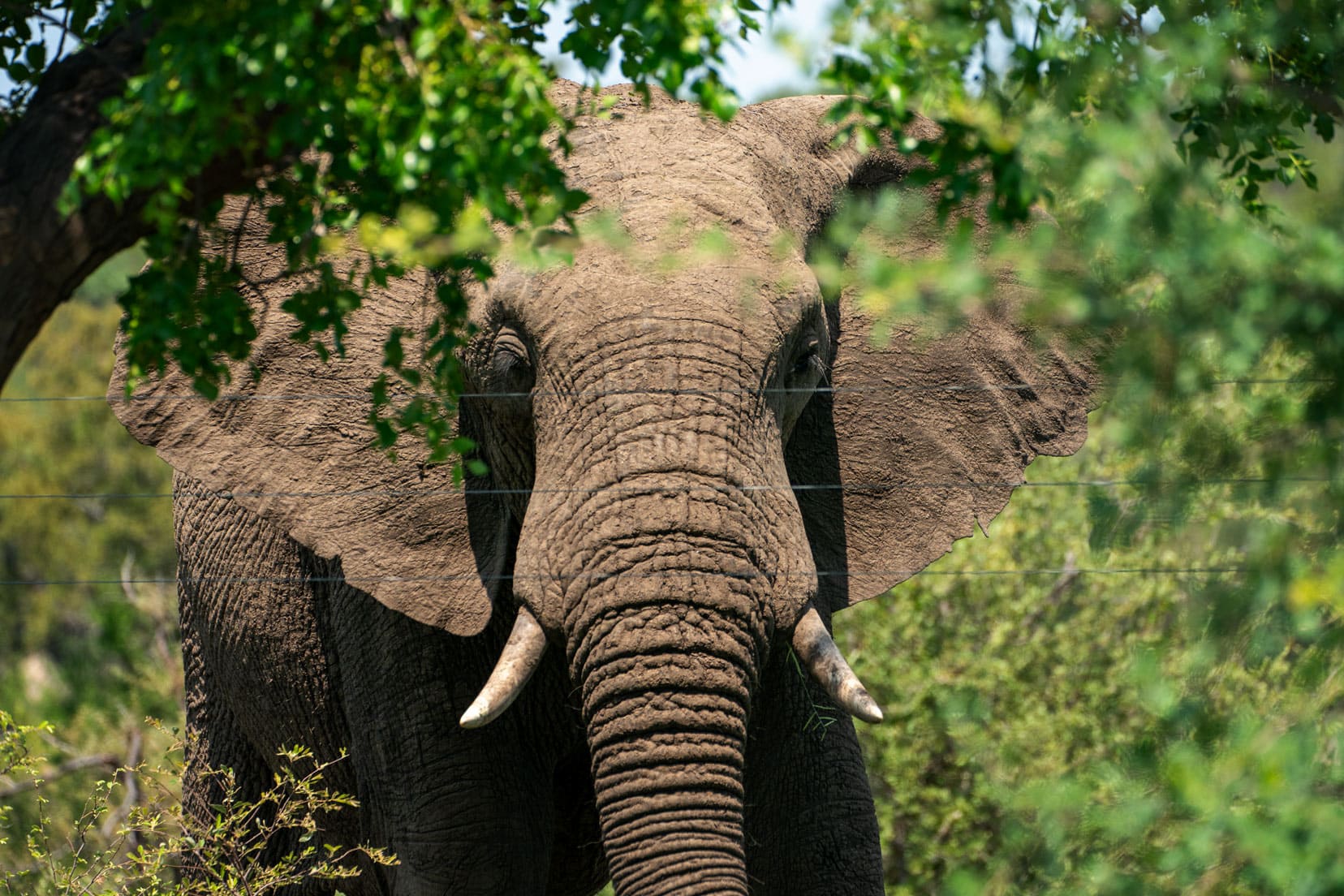
And that is how we found ourselves deep in the midst of the African bush.
Enraptured and spellbound at every turn.
🐾 🐈⬛🐕 We have been using TrustedHousesitters since late 2018 and have saved over $100,000 in accommodation fees,
👉 Sign up today and start saving!
(Get 25% off at checkout for any new Trusted Housesitter membership with our discount code: LIFEJOURNEY25)
Arriving at Klaserie: A Symphony of Wildlife
We rolled into Klaserie just as the sun dipped below the horizon. The bush was alive with activity—impalas darting, mongooses scurrying, and giraffes blending into the scenery like nature’s own optical illusion.
Within days, the Klaserie bush took hold of our hearts.
You cannot help but be changed by the African bush.
Nature compels you to be present, and the African Bush whispers to you.
And, if you listen carefully, it will tell you its secrets.
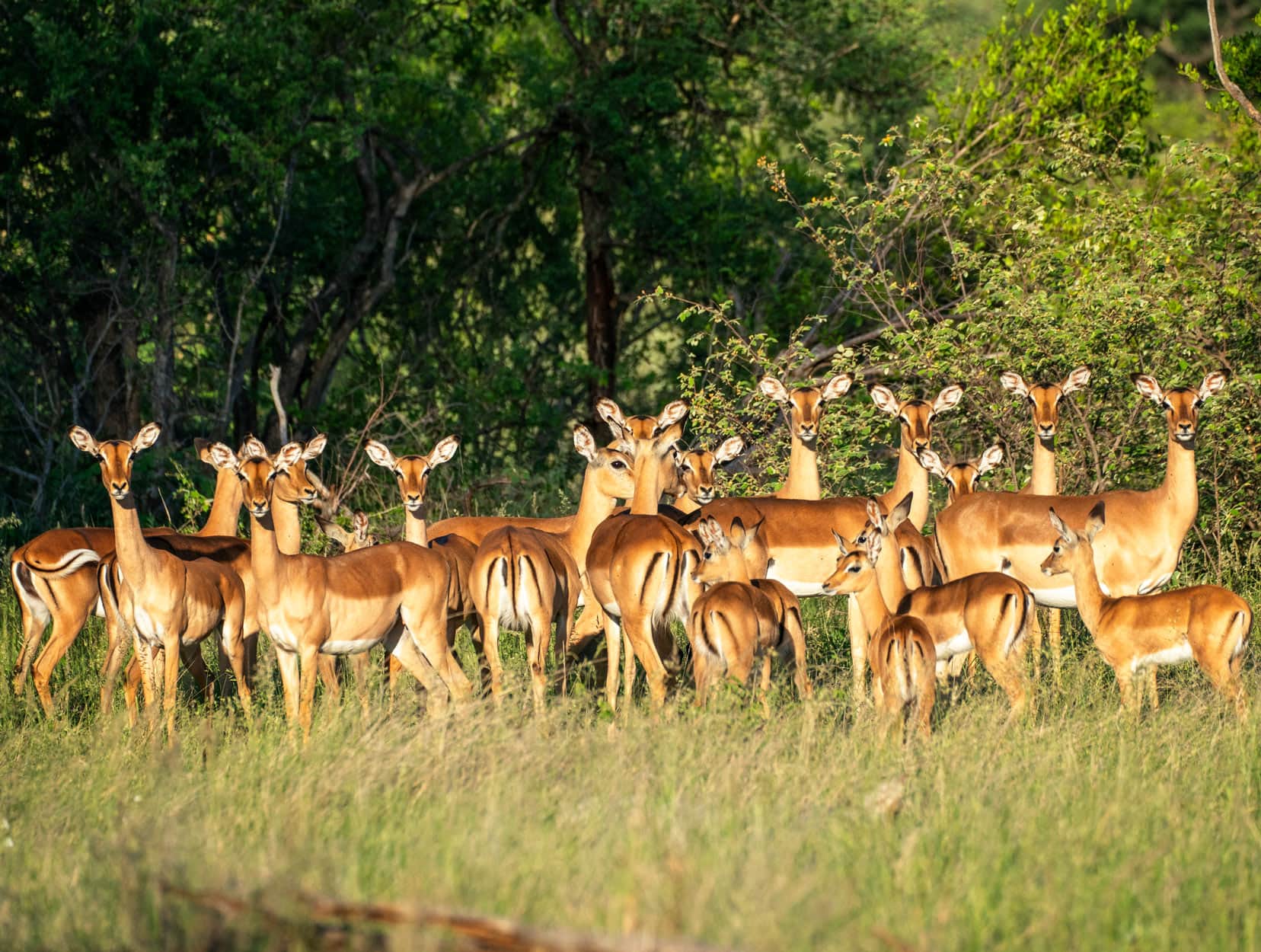
The Sounds of Klaserie
You soon learn to recognise various grunts, growls, raucous chatter, and roars.
A distant snap of a branch carried on the breeze tells you elephants are likely nearby.
A muffled snort means watch out for the grumpy ‘Dagga Boys’, the old male buffalos, that will charge you without reason.
You will hear the fish Eagle’s seagull-like screech, the Go-Away Bird’s incessant demands, and the Pearl-Spotted Owl’s unmissable whistle increasing in pitch as if practising its chords.
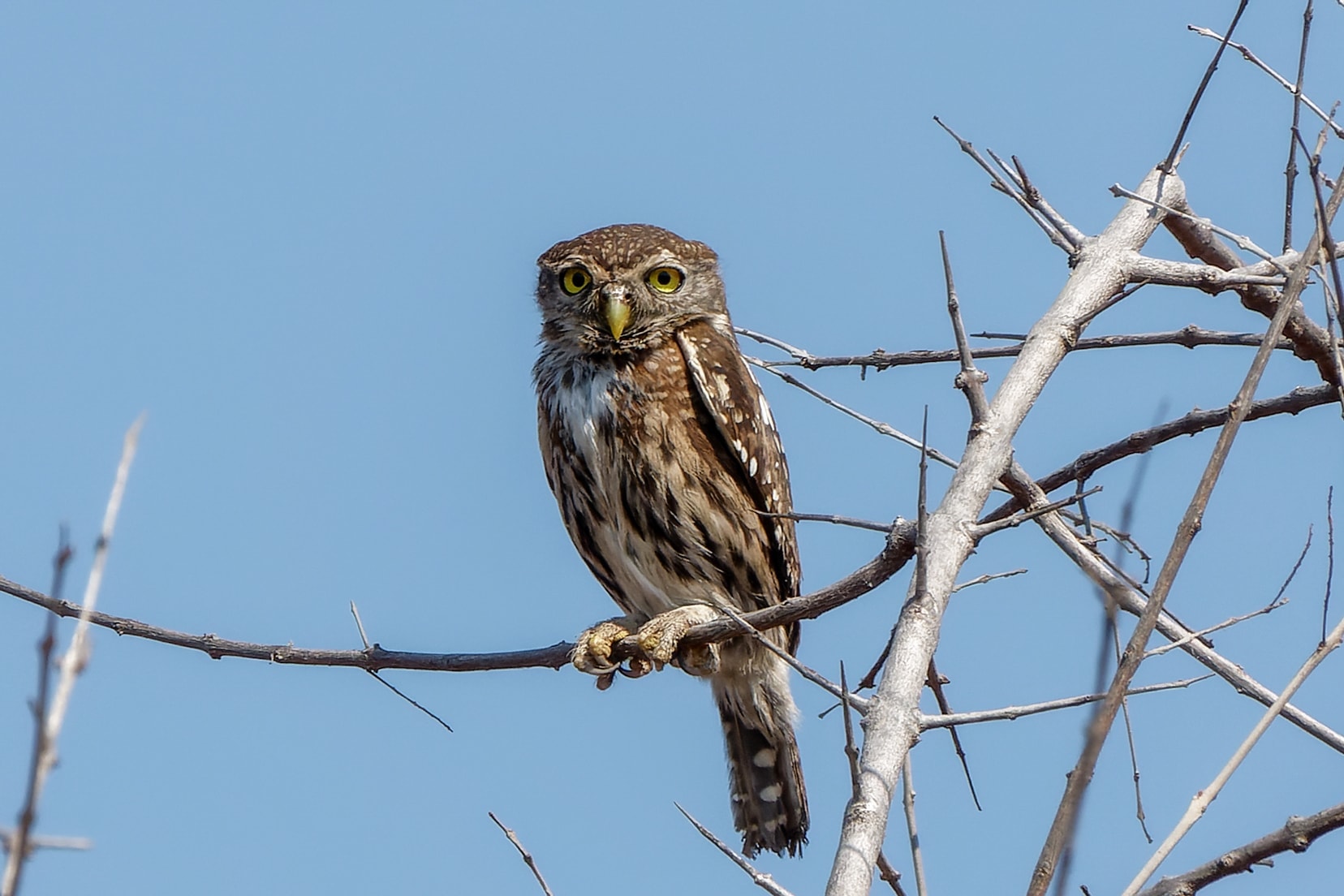
Living in the Bush
Lars and I slowly became comfortable with the idea of being amongst these wild animals. We even got used to the old Dagga Boys slumping beside our rondavel some evenings.
Buffalos, especially the older males known as ‘Dagga Boys’, are not to be trifled with. They’re grumpy, unpredictable, and can charge at you without warning.
🐃 Tip: If you encounter a buffalo, your best bet is to climb a tree. Seriously.
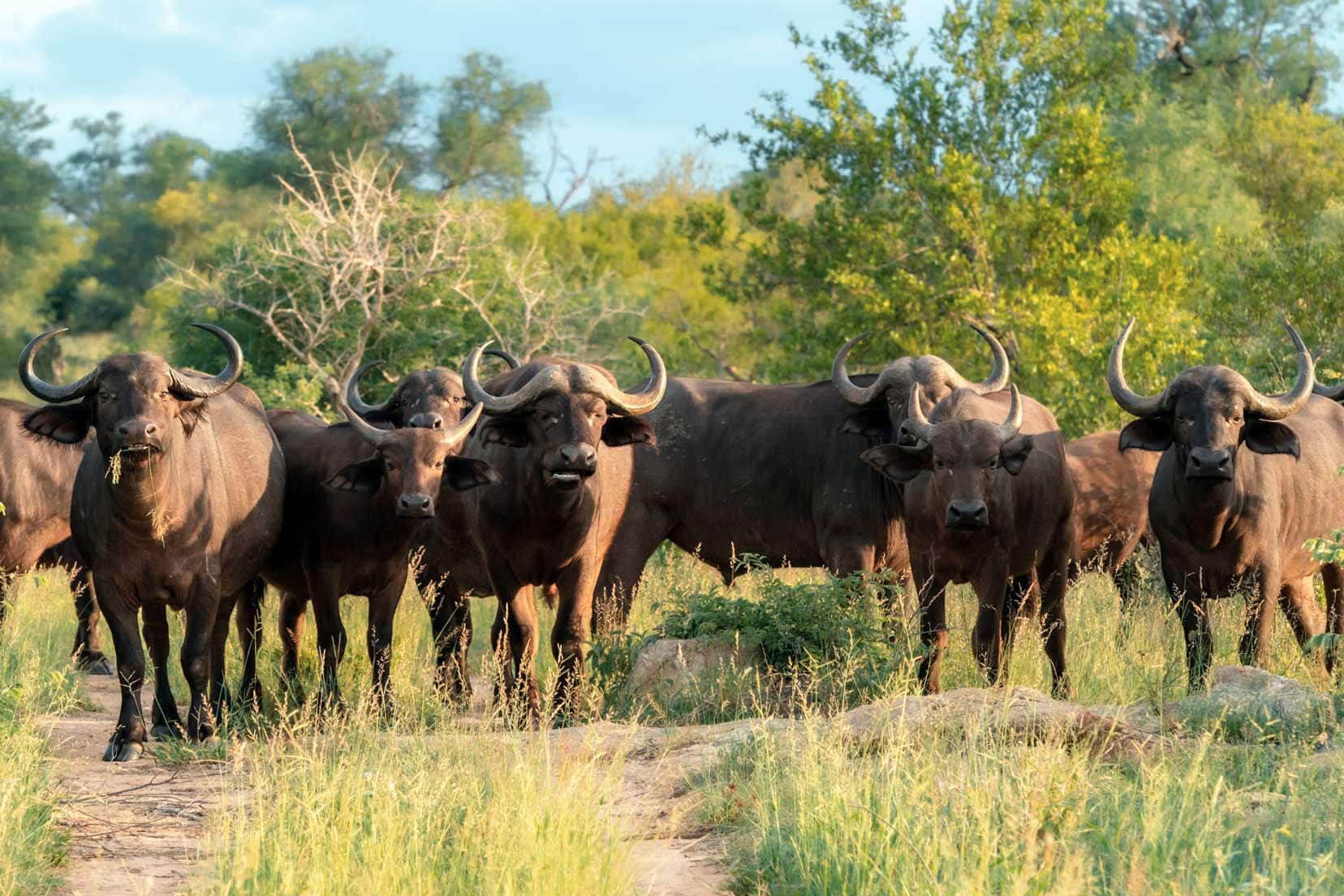
All sorts of animals ventured either through camp or wandered by. Elephants, rhinos, lions, hyenas, zebra, giraffes, kudu, impalas and more all became our neighbours.
And let’s not forget the plethora of birds, both those commonly found in South Africa and birds that frequent Greater Kruger.
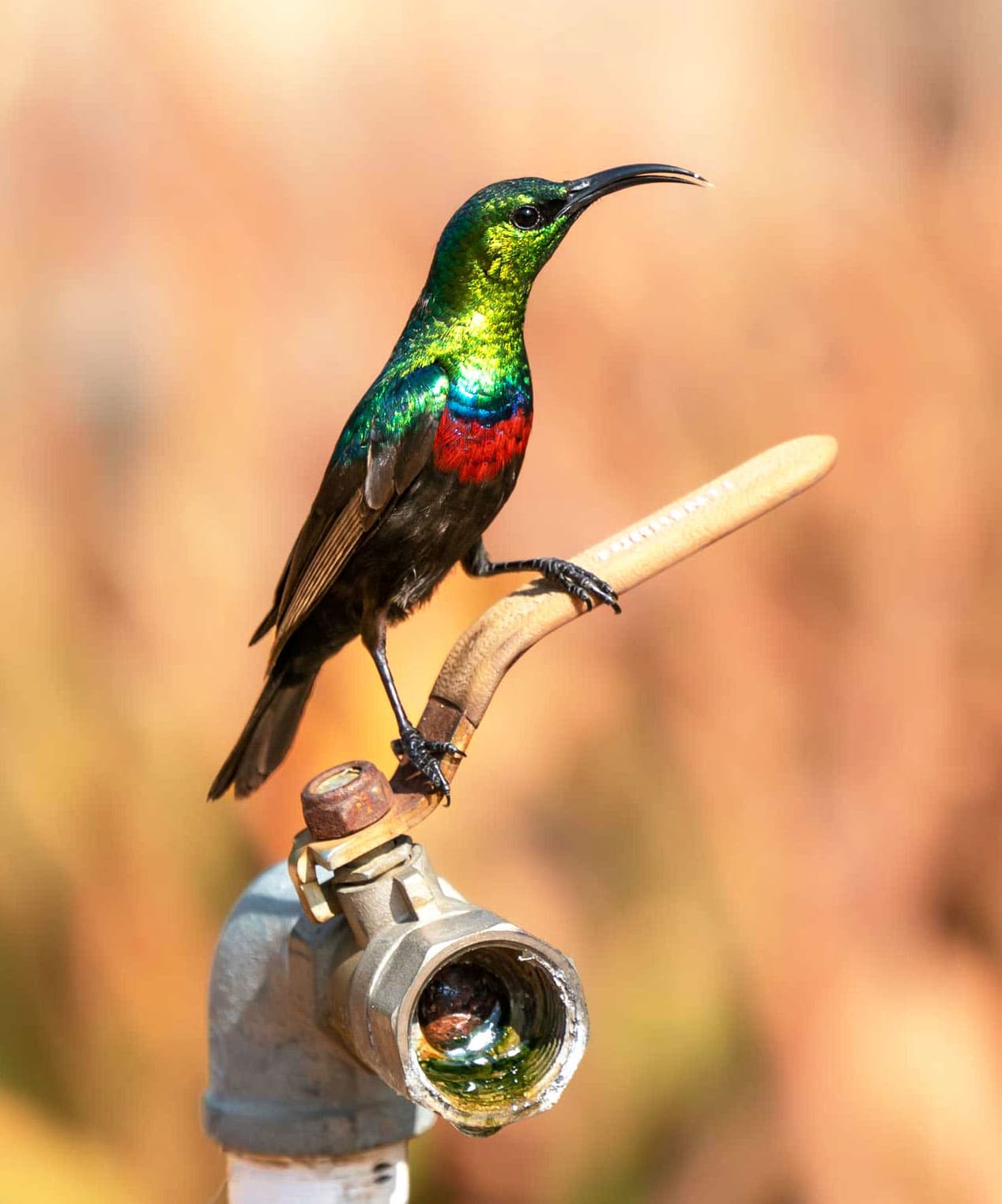
Klaserie camp ©Lifejourney4two
Most afternoons, the local troop of baboons sauntered by, watching us watching them. A few often came into the camp; one even jumped in the kitchen window and stole one of my lemons.
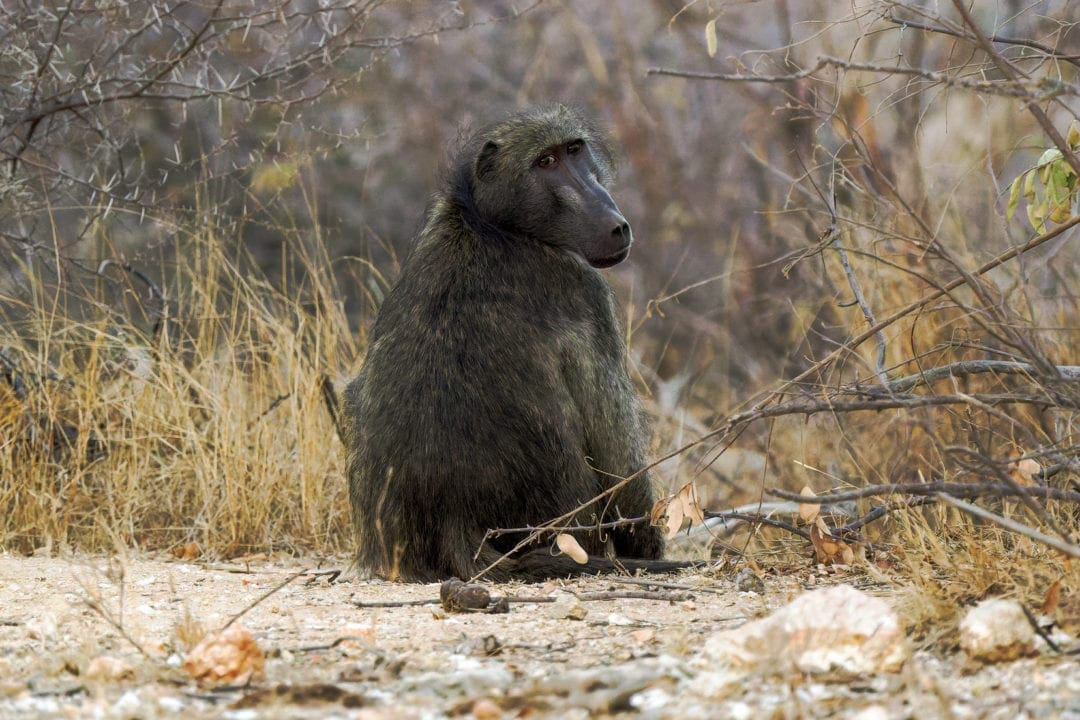
Baboons, along with elephants, are one of my favourite animals to watch. In fact, I love watching any type of monkey, to be honest. I was in my element when we volunteered with vervet monkeys while in South Africa.
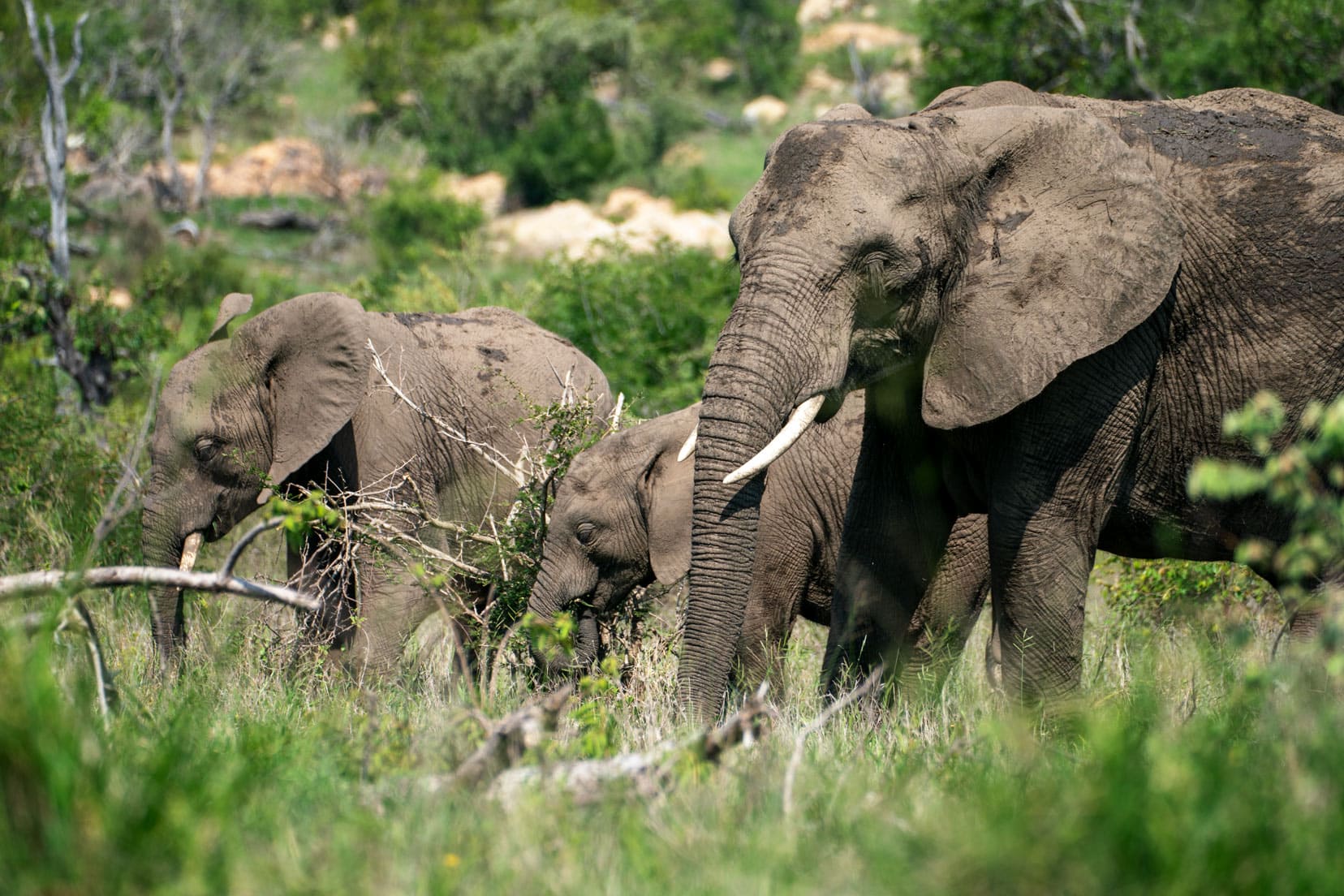
The Super Pride
One afternoon, we were finishing up a rather uneventful self-drive safari — nature can be fickle that way— when we came across about 15 lions all feasting on a huge buffalo.
It was one of Klaserie’s two super prides, and we were treated to a first-row seat to one of nature’s gruesome but necessary spectacles.
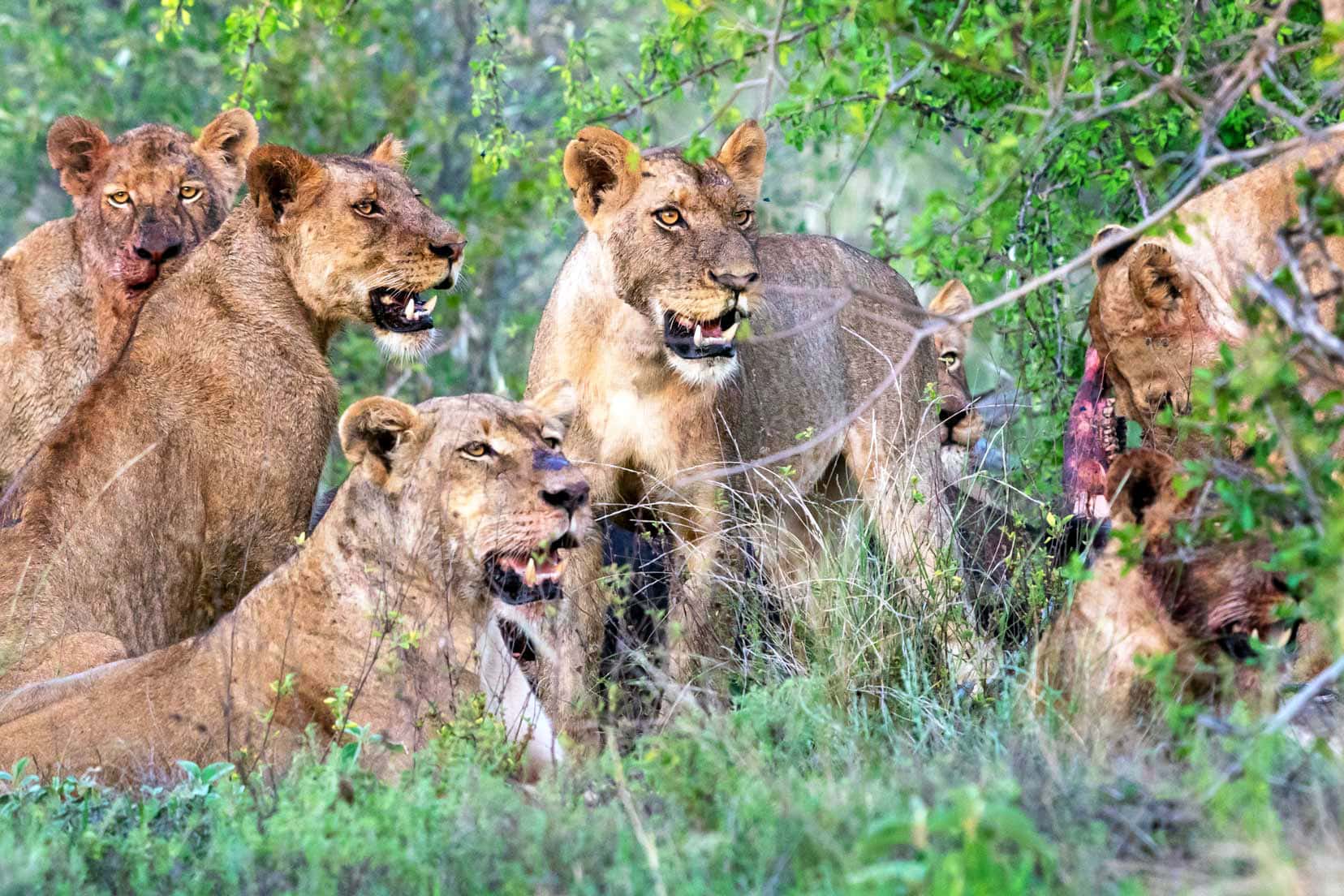
VIDEO: Super-Pride in Action
Here’s a snapshot of a few moments of the lions feeding and then the next day when the hyenas start trying to muscle in on the action.
▶︎ 0- 25 secs: Lions on kill the afternoon we found them
▶︎ 25- 35 secs: Early the next morning, the hyenas are circling, and lions keep chasing them off (Listen to the cackling sounds)
▶︎ 35 secs – 39 secs: a few lions keeping guard
▶︎ 39 secs: hyenas take over for a while
Final Words: The Beauty of Adaptation
Life in Klaserie was a lesson in adaptation. Whether it was learning to live amongst wild animals or adjusting our travel plans on the fly, we embraced the unpredictability of it all.
And that’s the beauty of the African bush—it challenges you, changes you, and leaves you wanting more.
Days after my leopard encounter, I found myself more in tune with the bush. It’s funny how a brush with danger can sharpen your senses and deepen your connection with your surroundings.
Don’t let fear hold you back. Sometimes, the most unforgettable experiences come when you step out of your comfort zone.
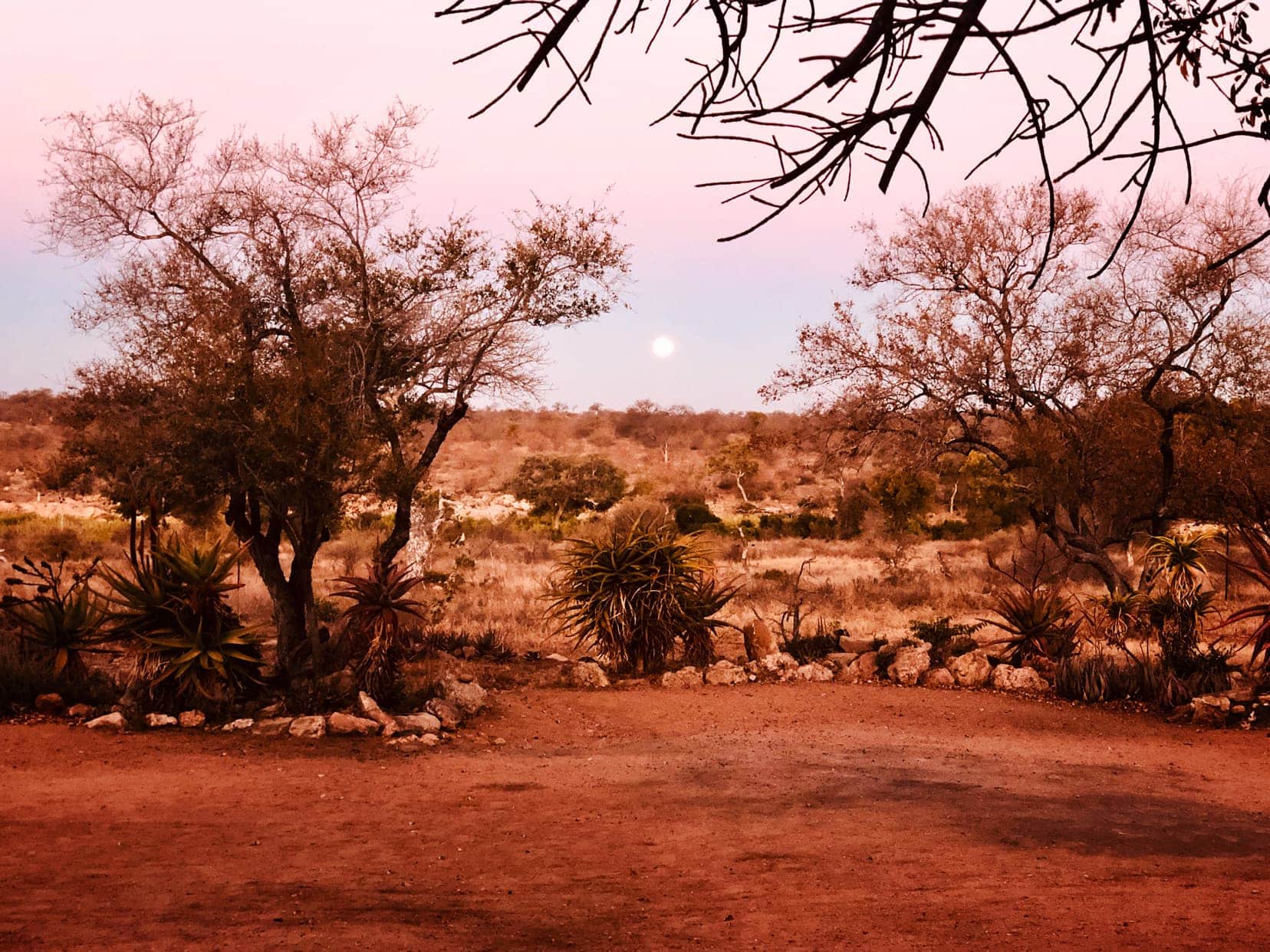
One Minute Video of Klaserie Wildlife
Immerse yourself in the heart of Klaserie with our one-minute video showcasing a breathtaking montage of our most unforgettable wildlife encounters.
From the majestic stride of elephants to the stealthy prowls of leopards, experience the pulse of the African bush as if you were right there with us
Klaserie Nature Reserve Accommodation Options
For the four months we’ve stayed in Klaserie Reserve, we were mostly in a privately owned camp.
Update: That private camp is now available to book, though! From August 2024, the camp will be run by an incredible guide and his wife, who has spent his whole life exploring Klaserie and is as much a part of it as the wildlife you’ll encounter.
Find out more about this incredible opportunity to stay at this camp on either a catered or self-catering basis with two game drives per day. Visit Wild Legacy Safaris to enquire about availability and price here.
We also spent an unforgettable two days at Ivory Wilderness River Rock Lodge. This family-owned gem honours the legacy of the Klaserie Pioneers, and if you are looking for that extra spot of luxury, we can’t recommend it highly enough.
We also enjoyed lunch and a game drive at Klaserie Drift Safari Camp—another spot we happily recommend.
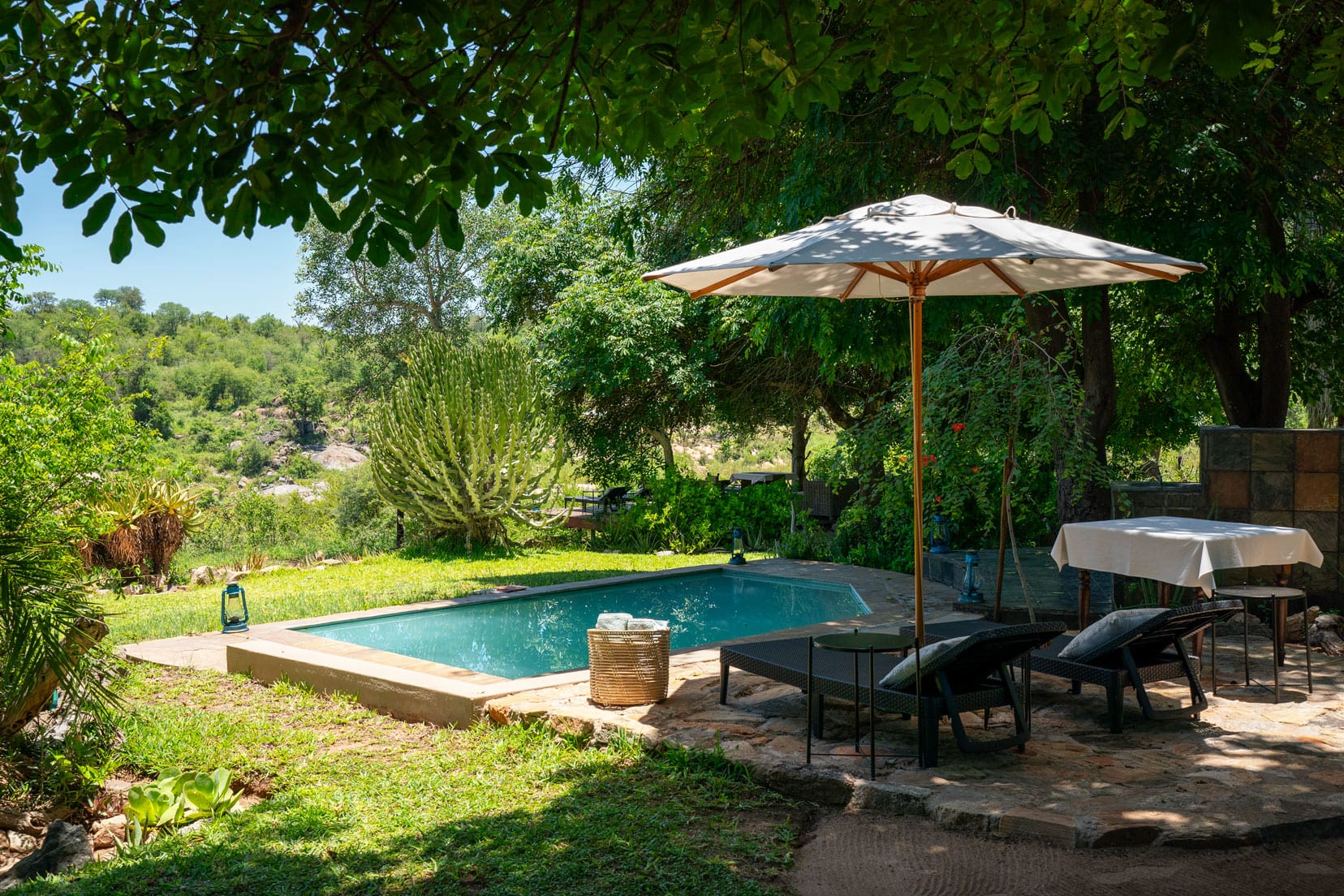
Klaserie Private Nature Reserve Map
So, where is Klaserie?
Klaserie is nestled in the northeastern corner of South Africa, specifically on the western side of the iconic Kruger National Park in the Limpopo Province.
Whether you’re coming from Hoedspruit or further afield, Klaserie is easily accessible by both road and air.
We’ve also marked up all the lodges mentioned on the map so you can get an idea of where they are in the reserve.
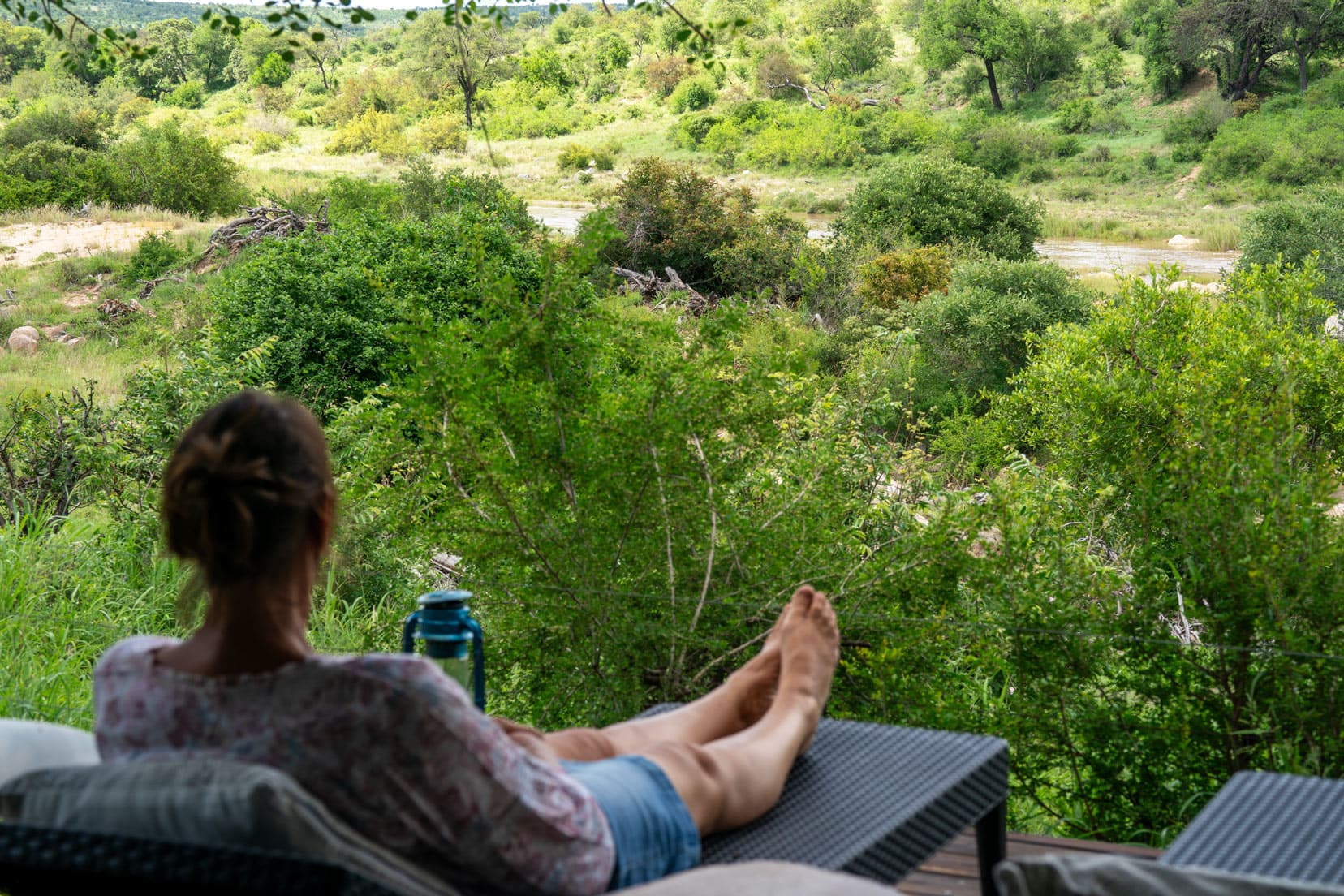
Visitor Review Insights for Our Top Three Recommended Klaserie Camps
We have personal experience with our top three picks and have broken each down into an easy-to-read table after collecting even more opinions from other guests’ reviews on Booking.com and Tripadvisor.
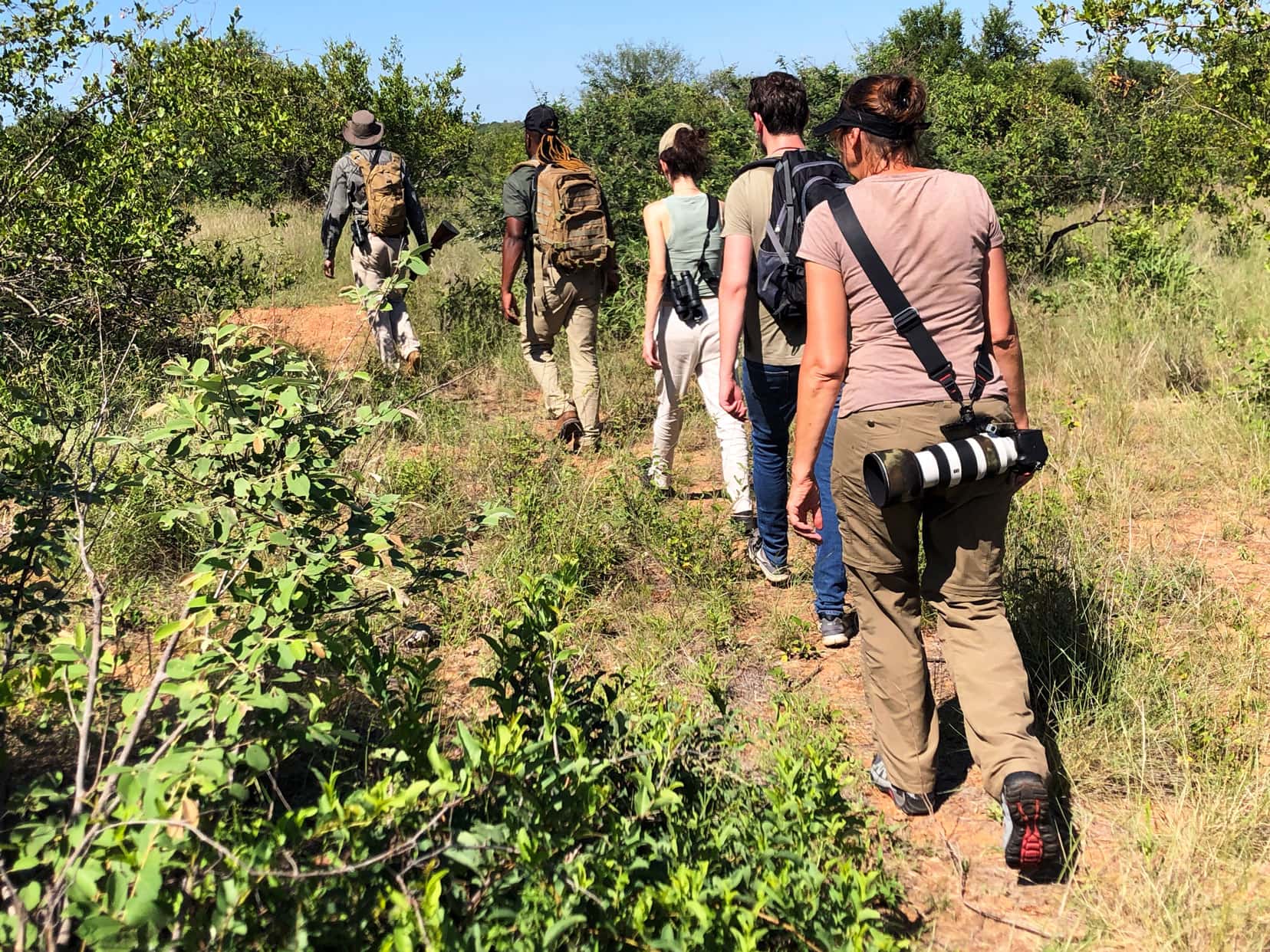
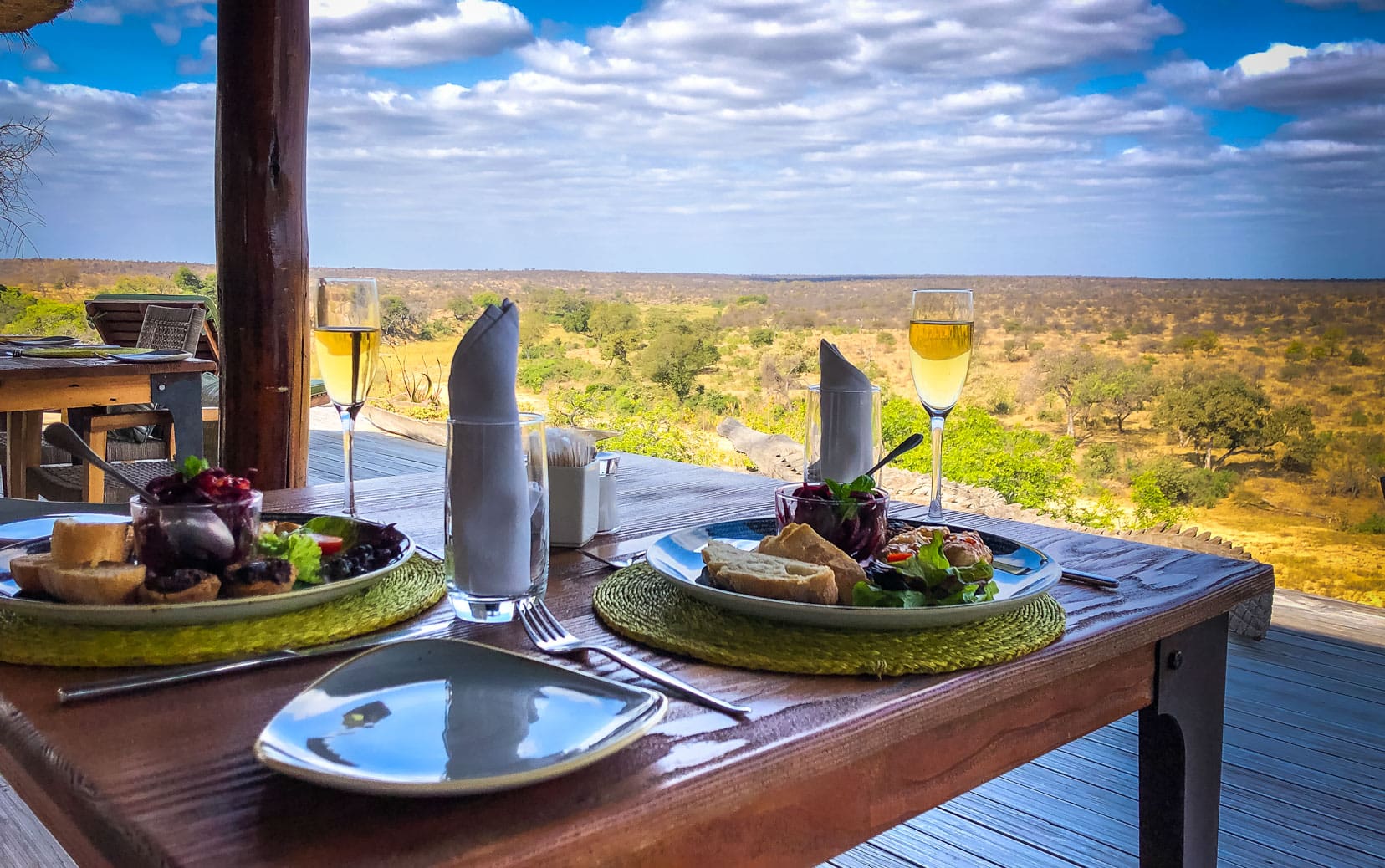
How Big is Klaserie?
Klaserie Private Nature Reserve spans an impressive 60,000 hectares. To give you some perspective, that’s roughly the size of Singapore!
However, the reserve is part of a much larger protected area that exceeds 2 million hectares—an area larger than the entire country of Slovenia.
These unfenced borders with neighbouring reserves and the Kruger National Park allow wildlife to roam freely, offering a diverse and frequent animal sighting experience.
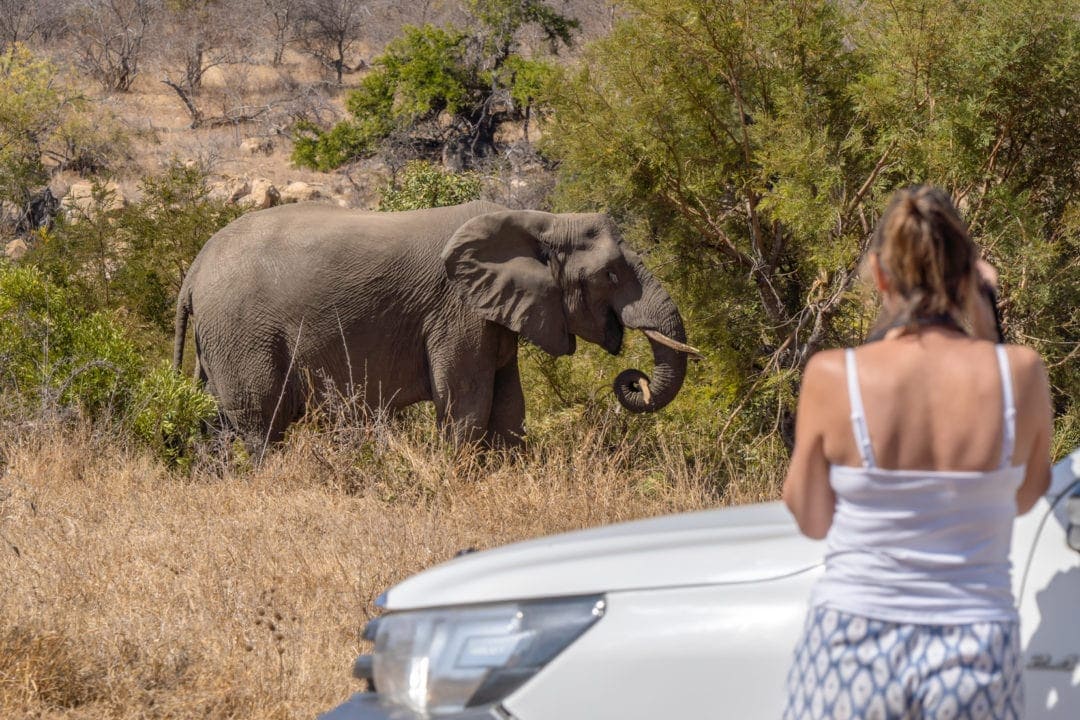
The History of Klaserie Private Nature Reserve
Deep Roots and Family Ties
Klaserie isn’t just a reserve; it’s a family legacy. Over 50 years ago, 36 original farm owners united their lands to form Klaserie Private Nature Reserve.
This was more than a business venture; it was a pledge to protect a slice of Southern Africa’s pristine wilderness for generations to come.
We’ve been lucky enough to befriend some of these families, and their love for the land is palpable.
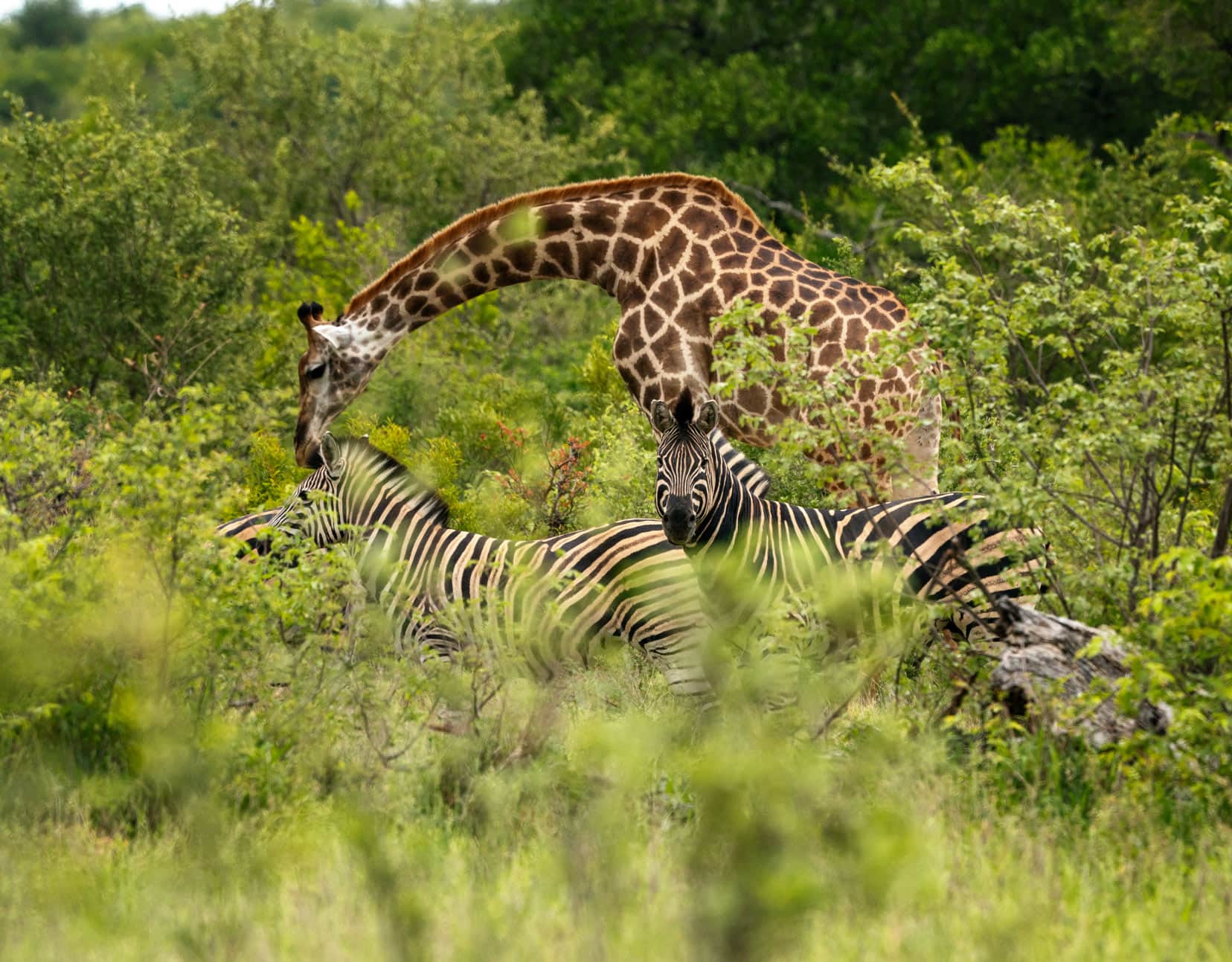
A Commitment to Conservation
The reserve was officially proclaimed a nature reserve in 1972. But its mission was clear long before that: to protect biodiversity and inspire a sense of stewardship over this unique land.
It’s a mission that continues to this day, and your visit contributes to these vital conservation efforts.
A Living History
The Klaserie you see today is the result of decades of dedication and a deep-rooted connection between the people and the land. It’s a history worth celebrating. And when you visit, you become a part of that living history.
So, when you set foot in Klaserie, you’re not just a visitor but a contributor to a legacy that spans generations.
Ready to be a part of something bigger?
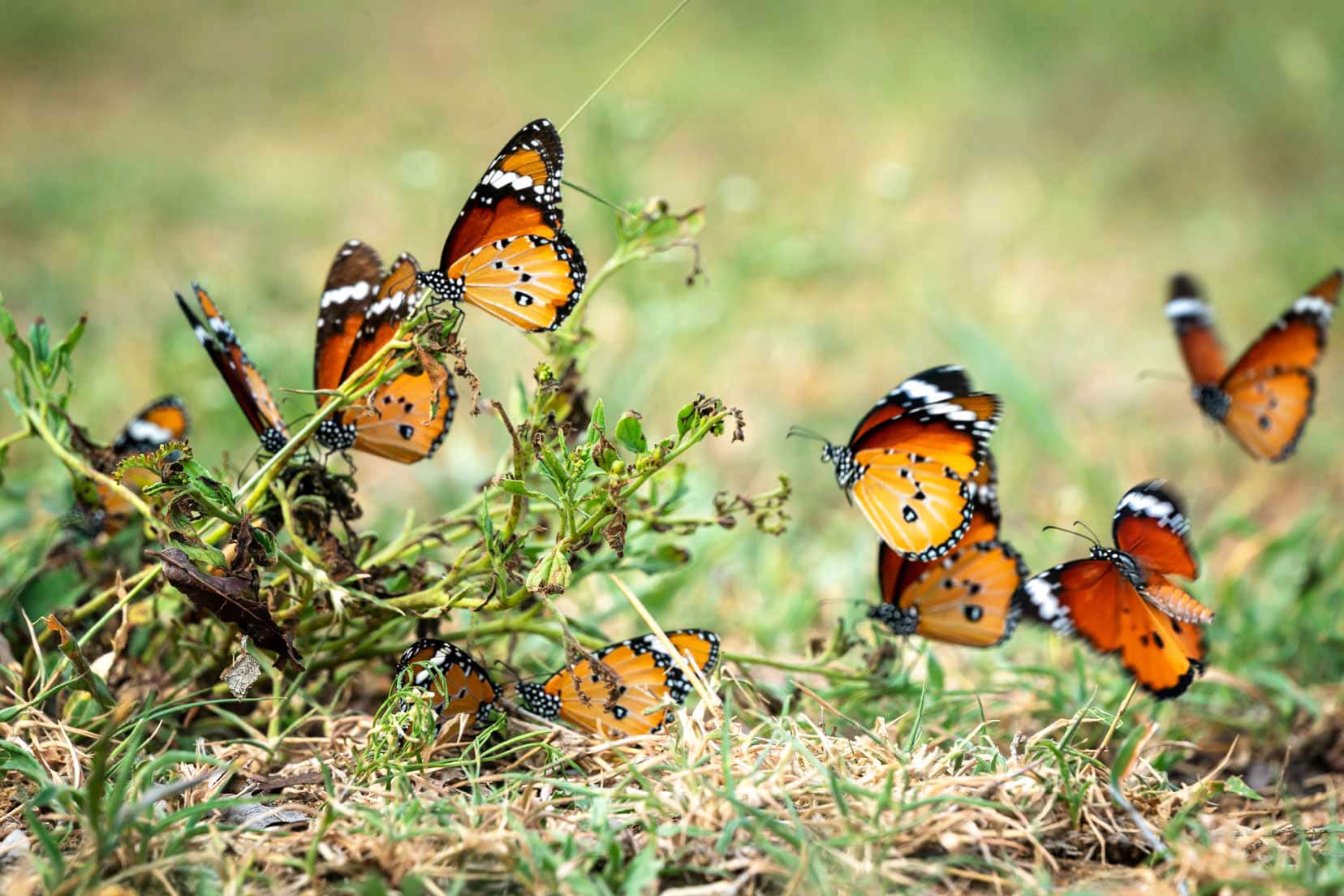
How to Get To Klaserie
Getting to Klaserie Private Nature Reserve is part of the adventure, whether you choose to fly or drive. Each option has its own set of perks and considerations, so let’s dive into the details.
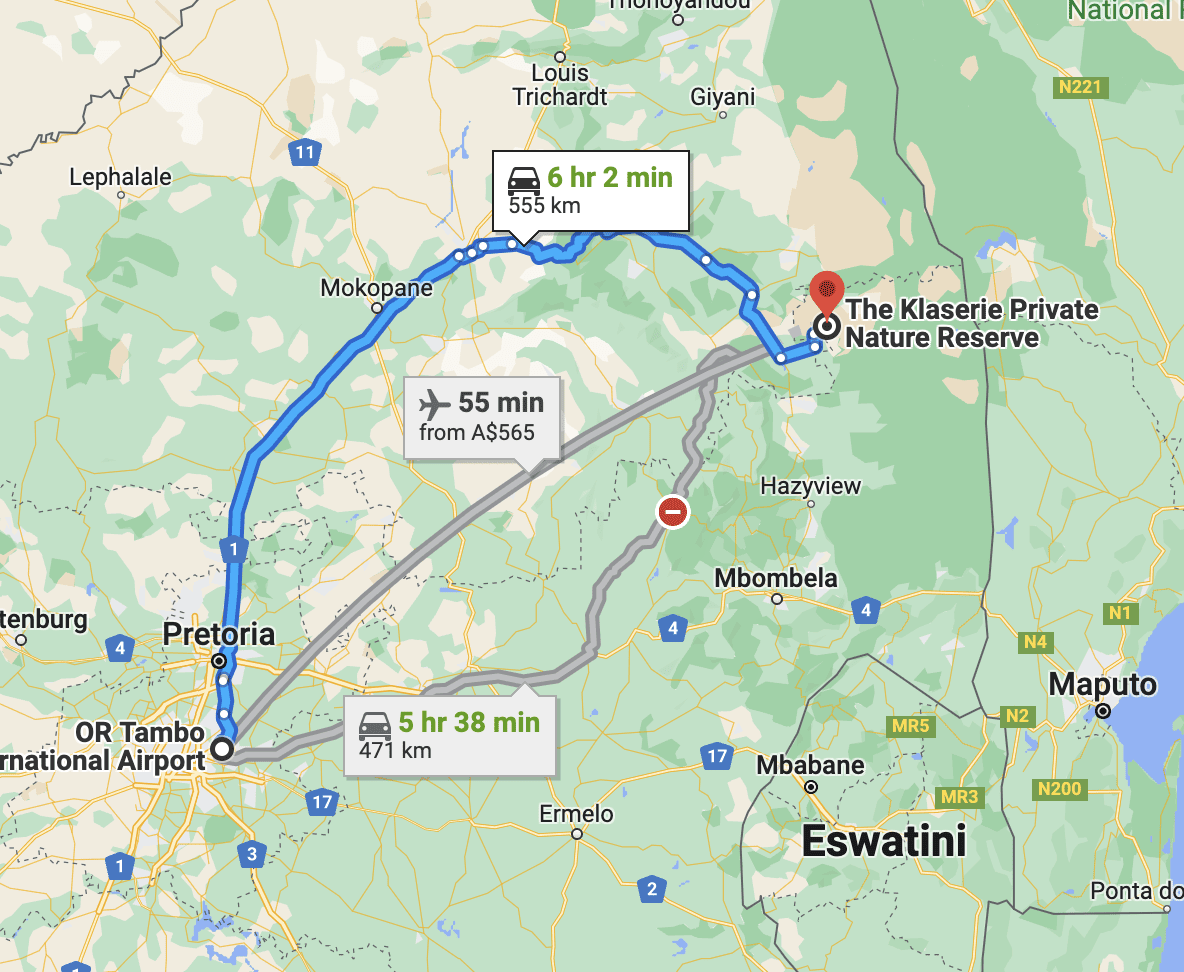
To Klaserie By Air
If you’re flying in, your first stop will likely be O.R. Tambo Airport in Johannesburg. From there, you can catch a connecting flight to Hoedspruit Airport, which is about 45 minutes away from Klaserie by car.
Many lodges offer pick-up services, making this a convenient option.
Avis also offers a car rental service from the airport.
Once you arrive in Klaserie, remember that camps can be another 1-2 hour drive within the reserve. But hey, consider that an extra game drive!
💡 Tip: Opt for a lodge pick-up from Hoedspruit Airport if available. It’s the easiest way to kick off your safari adventure.
What is the Closest Airport to Klaserie?
East Gate Airport at Hoedspruit Airport is your closest gateway. It’s well-connected to Johannesburg and Cape Town, making it a convenient option for most travellers.
To Klaserie By Road
If you’re driving from Johannesburg, expect a 6-7-hour journey. Though longer, the route shown on the map above from Johannesburg to Klaserie via Mokopane was considered the safest and easiest.
💡 Tip: For the Klaserie Reserve part of the journey, a 4×4 is highly recommended. It’ll handle varying road conditions and make those deep sand patches and corrugations a breeze. For more tips on driving in South Africa, check out our comprehensive guide.
💡 Local Insight: Always check with locals about current road conditions and any suspicious activity on the route out of Johannesburg. Safety first!
Driving Directions To Klaserie Reserve from Hoedspruit
- Head towards Eastgate Airport
- About 7-8 km after leaving Hoedspruit, turn left towards Eastgate Airport.
- Pass through the Guernsey control gate and continue for about 19 km, crossing the Klaserie River Bridge.
- Complete the register at the next Control Gate and pay the conservation entrance fee.
- Turn left onto the gravel road and travel 3.8 km to ‘Incheni’, the entrance gate of Klaserie Private Nature Reserve.
- Fill in the register and continue on to find your accommodation.
💡Tip: Make sure you have an offline map because phone signals can be very sketchy in the reserve, and many sandy tracks can confuse your navigation skills. Note that MTN seems to offer the best coverage in this area.
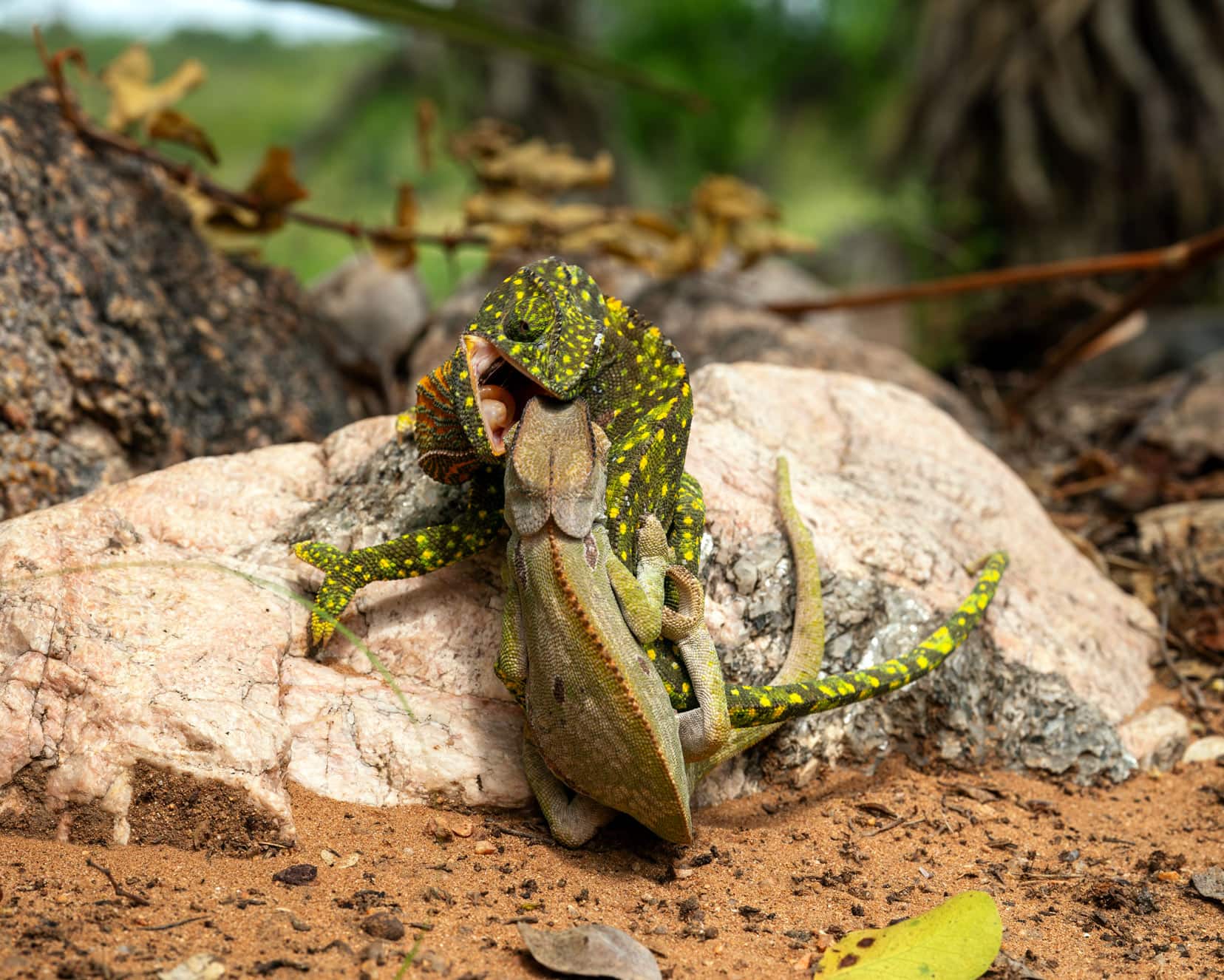
Practical Tips for Klaserie Nature Reserve
Before you embark on your adventure to Klaserie, being well-prepared is crucial. Here are some tips, from packing the right gear to knowing the health and safety protocols.
What to Pack: Essentials for a Klaserie Trip
- Clothing: Lightweight, breathable clothing in neutral colours (beige, grey, green, etc. but not white). Don’t forget a hat and sunglasses.
- Footwear: Sturdy hiking boots for those bush walks.
- Gear: Binoculars for game viewing and a camera for those Instagram-worthy shots.
- Personal Items: Sunscreen, insect repellent, and a reusable filtered water bottle. [use our discount code to get 15% off all Water-to-go Products: LJFT15]
🦁 For a more thorough look at what you’ll need on safari, head over to our detailed guide on essential safari accessories.
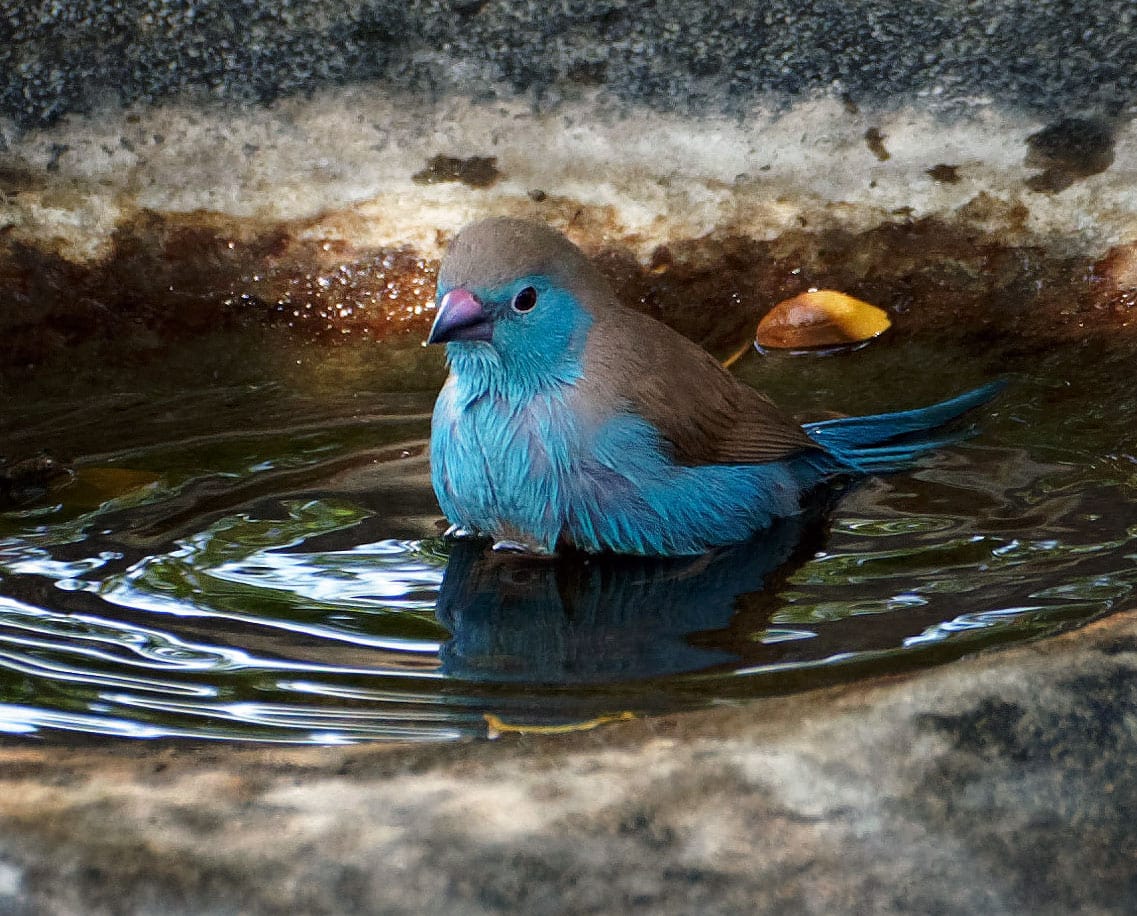
Health and Safety: Necessary Vaccinations and Safety Tips
- Vaccinations: Make sure you’re up-to-date on routine vaccines. Hepatitis A and Typhoid vaccines are also recommended.
- Bilhazia: The water in Klaserie has the parasitic worm that causes bilhazia, a chronic disease causing ill health, so avoid skin contact with any still river water.
- First Aid Kit: Pack a basic first aid kit with essentials like band-aids, antiseptics, and pain relievers.
- Local Emergency Numbers: Keep a list of local emergency contacts.
Is Klaserie a Malaria Area?
- Malaria Risk: Yes, Klaserie is in a malaria zone.
- Precautions: Consult your healthcare provider for the best anti-malarial medication for you.
- Symptoms: Be aware of malaria symptoms like fever, chills, and nausea.
Sustainability: How to be a Responsible Visitor
- Waste Management: Take all your waste with you.
- Water Conservation: Use water sparingly. Opt for a quick shower over a bath.
- Wildlife: Keep a respectful distance from animals. Don’t feed them.
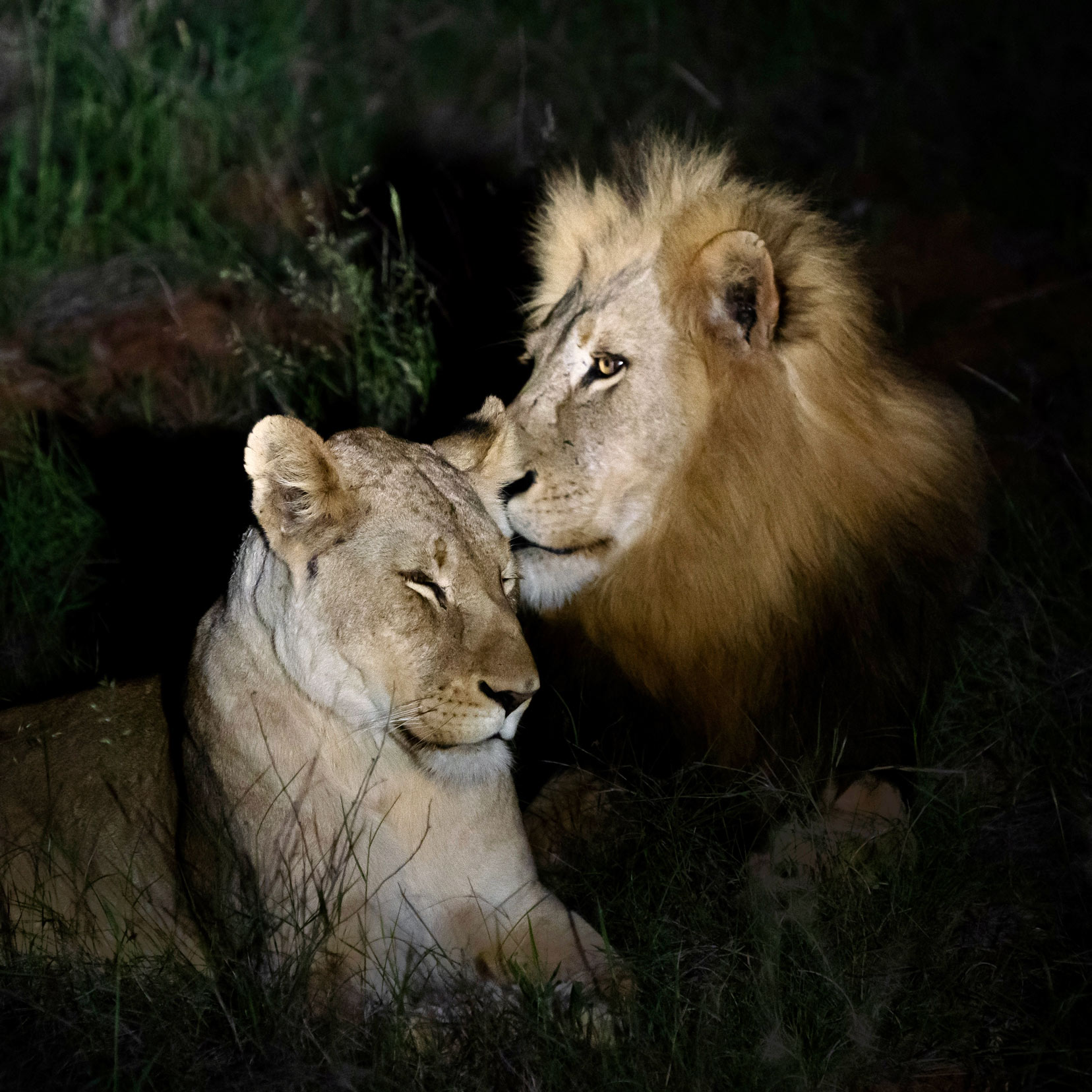
Klaserie Private Nature Reserve … That’s a Wrap
So, there you have it. Klaserie Private Nature Reserve is more than just a safari destination—it’s a transformative experience. It’s a place where you can escape the crowds, connect with nature, and contribute to meaningful conservation efforts.
A Few Final Tips
- Plan Ahead: Make sure to book your lodges and car hires well in advance.
- Health Precautions: Don’t forget to consult your healthcare provider about necessary vaccinations and medications.
- Pack Smart: Bring along a good camera, binoculars, and perhaps a wildlife guidebook to enhance your safari experience.
We’ve spent four incredible months in Klaserie, and it’s etched itself into our hearts.
It’s not just about the animals; it’s about the atmosphere, the ethos, and the sheer beauty of the African bush. If you’re looking for an intimate, impactful, and utterly unforgettable safari experience, Klaserie is the place to be.
Your next adventure is just a click away.
And remember to listen to the whispers of the African bush.
Safe travels, and may your journey through Klaserie be as enriching as ours has been.
Looking for more travel inspiration and tips? Sign up for our newsletter and get your free road trip planner.
Cheers, Shelley & Lars
Pin and Share
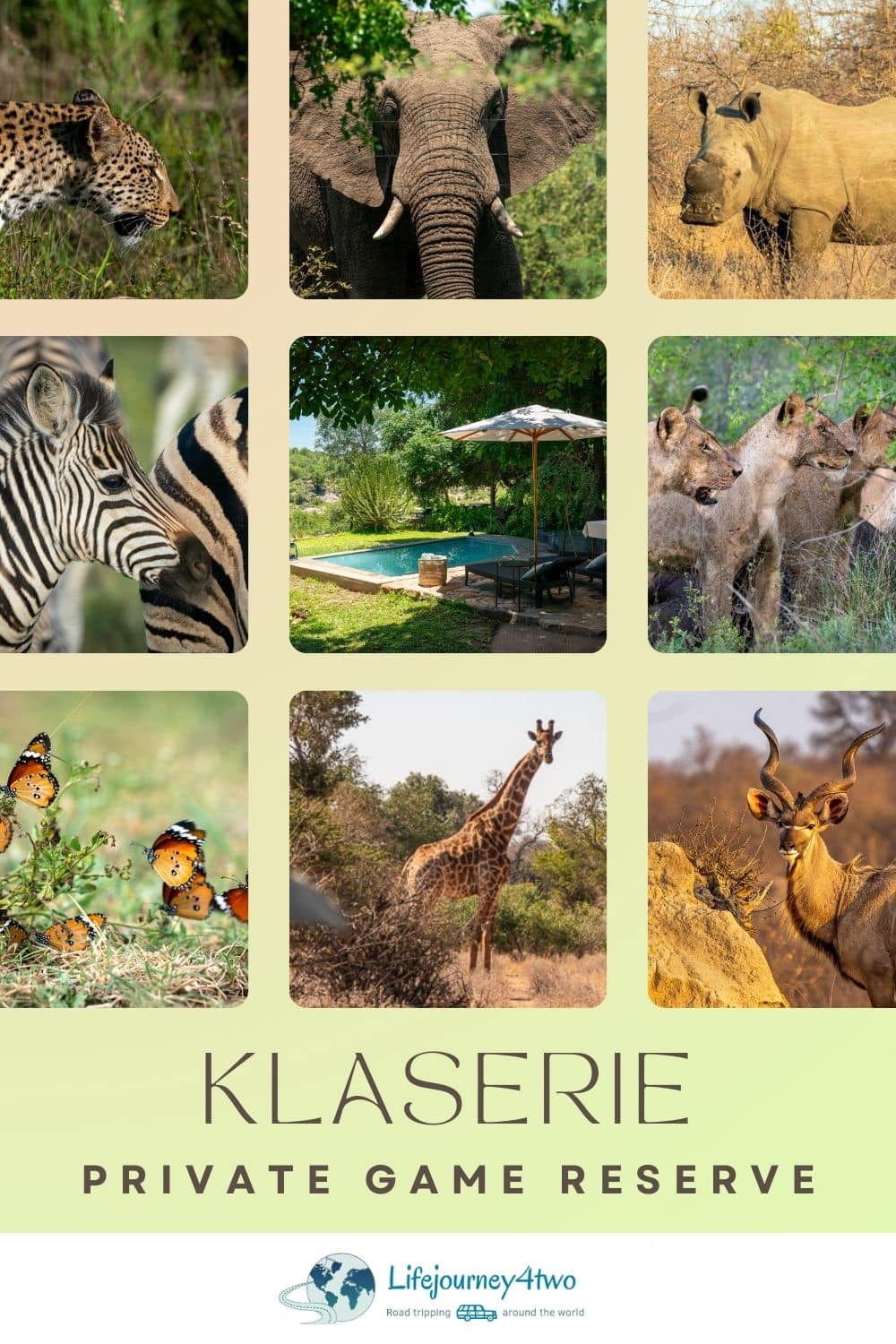
Before You Go – Are You Planning Your Travels?
These are the travel resources we recommend and use when planning our trips.
- 🚘 Car Hire: We use DiscoverCars.com
- Motorhome/Campervan Rental: We highly recommend the Motorhome Republic
- 🪪 Order your International Driver’s Licence online here
- 🛏 Book Accommodation: We use Booking.com to find accommodation that suits our budget
- 🐶 Pet Sitting/Pet Sitters: Check Out TrustedHousesitters here (Use our Discount code: LIFEJOURNEY25 for 25% off. )
- Activities and Experiences: Get Your Guide and Viator
- Travel Insurance: Safetywing or World Nomads
- 🥾 Travel Gear and Accessories: Check out our top picks here — Lifejourney4two page on Amazon
For a more thorough list, visit our Travel Resources page here.

